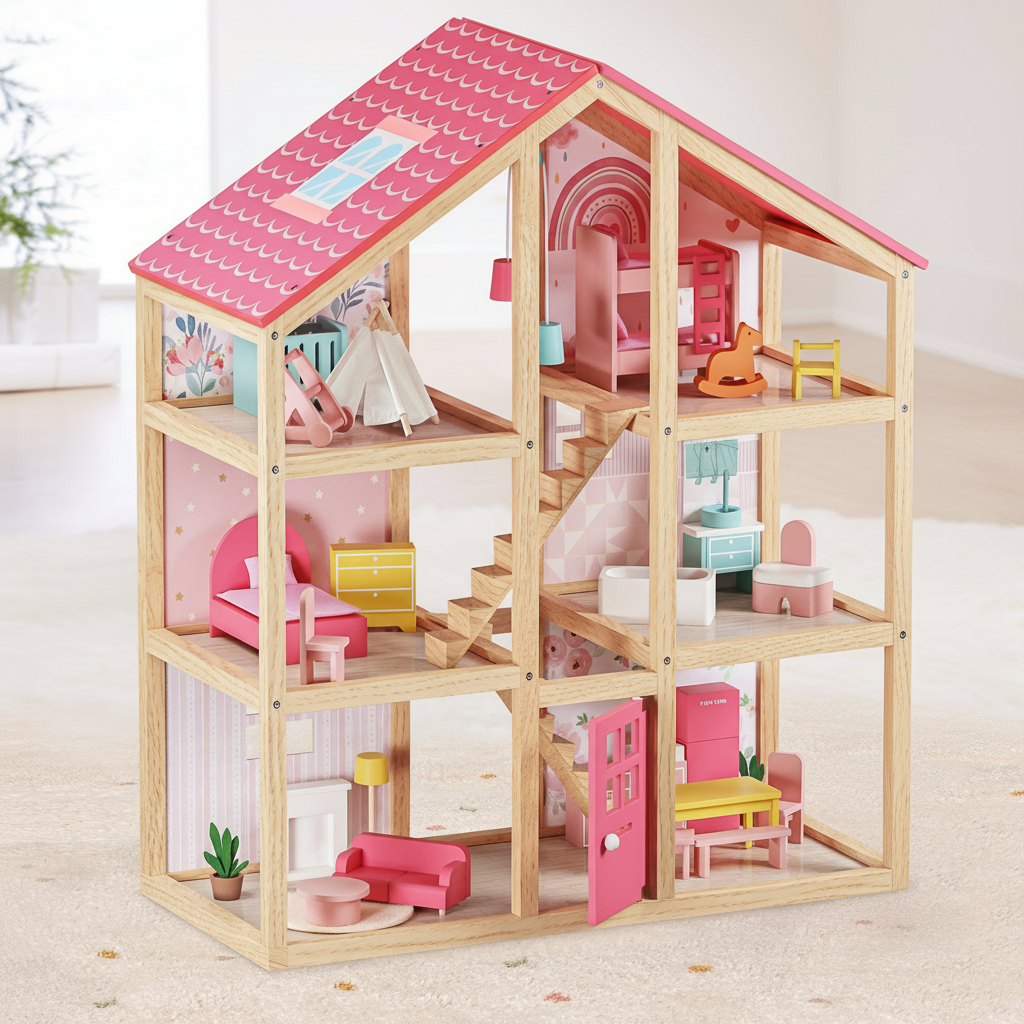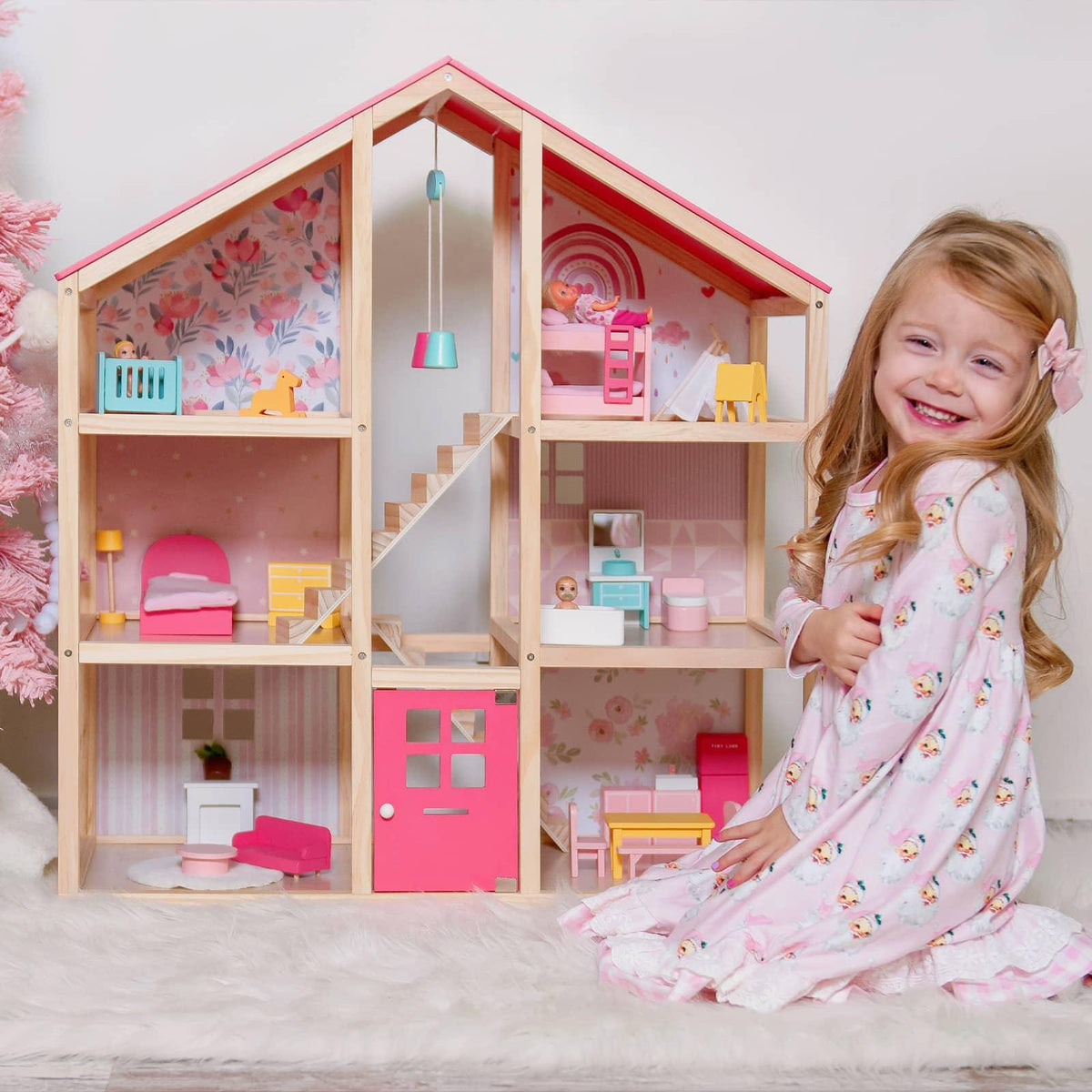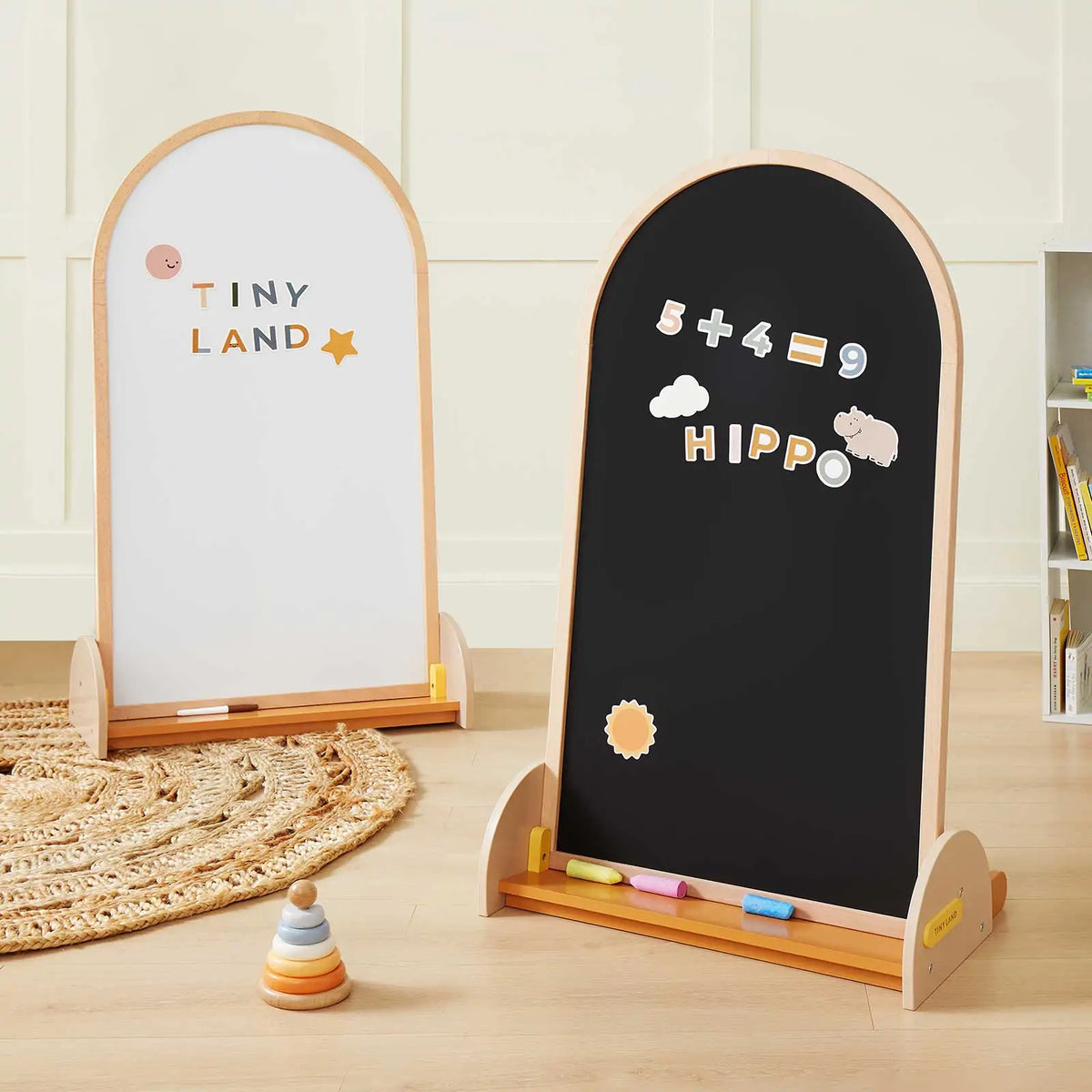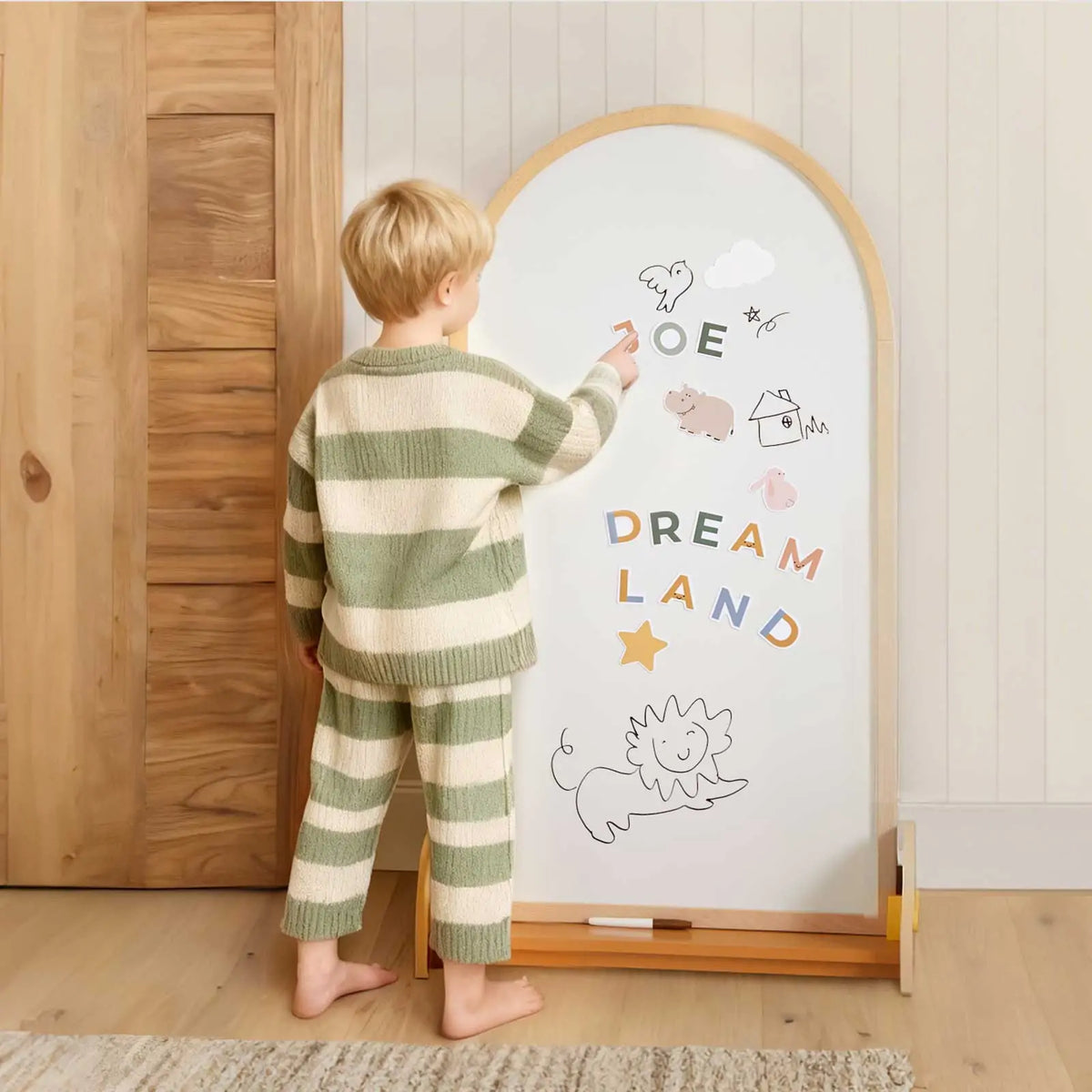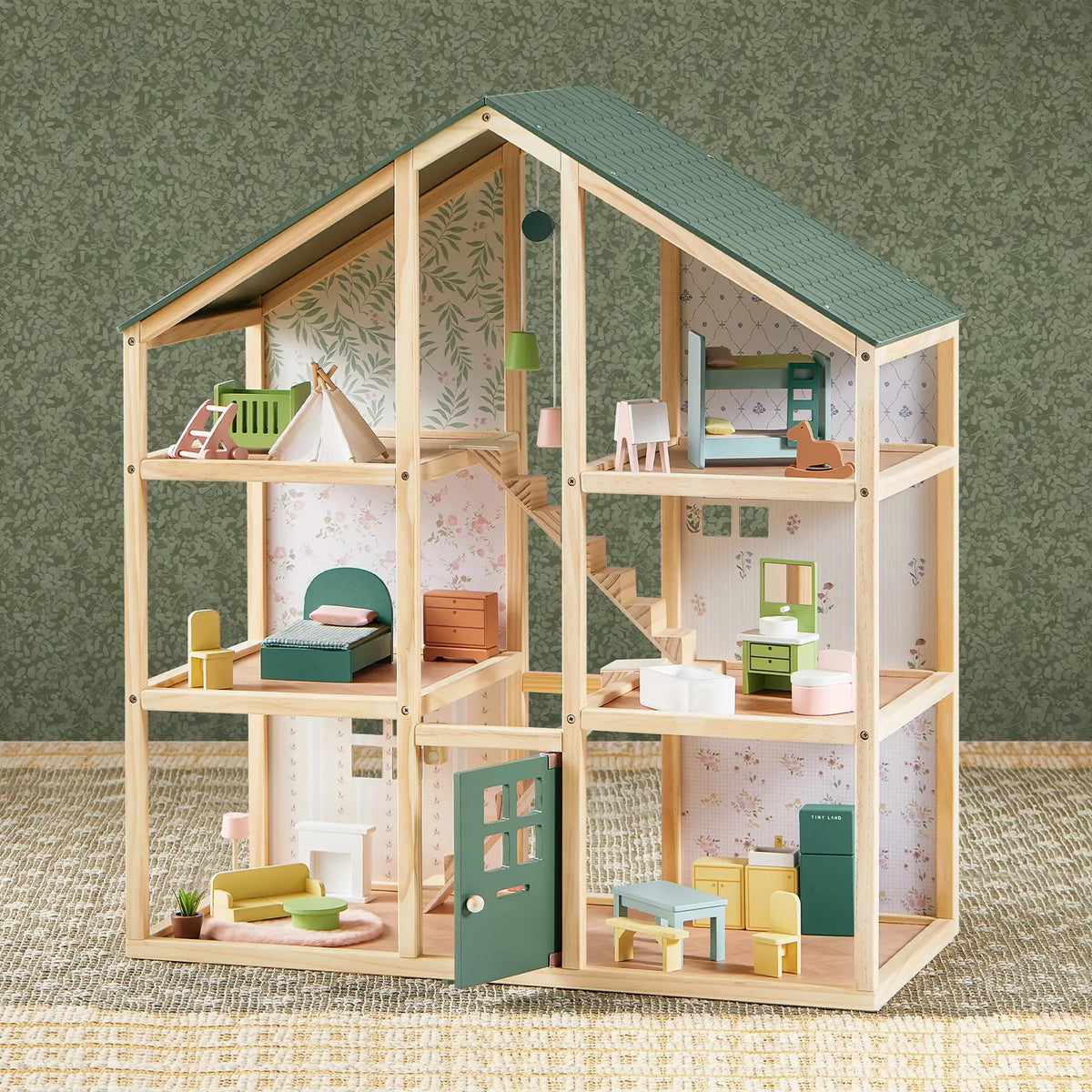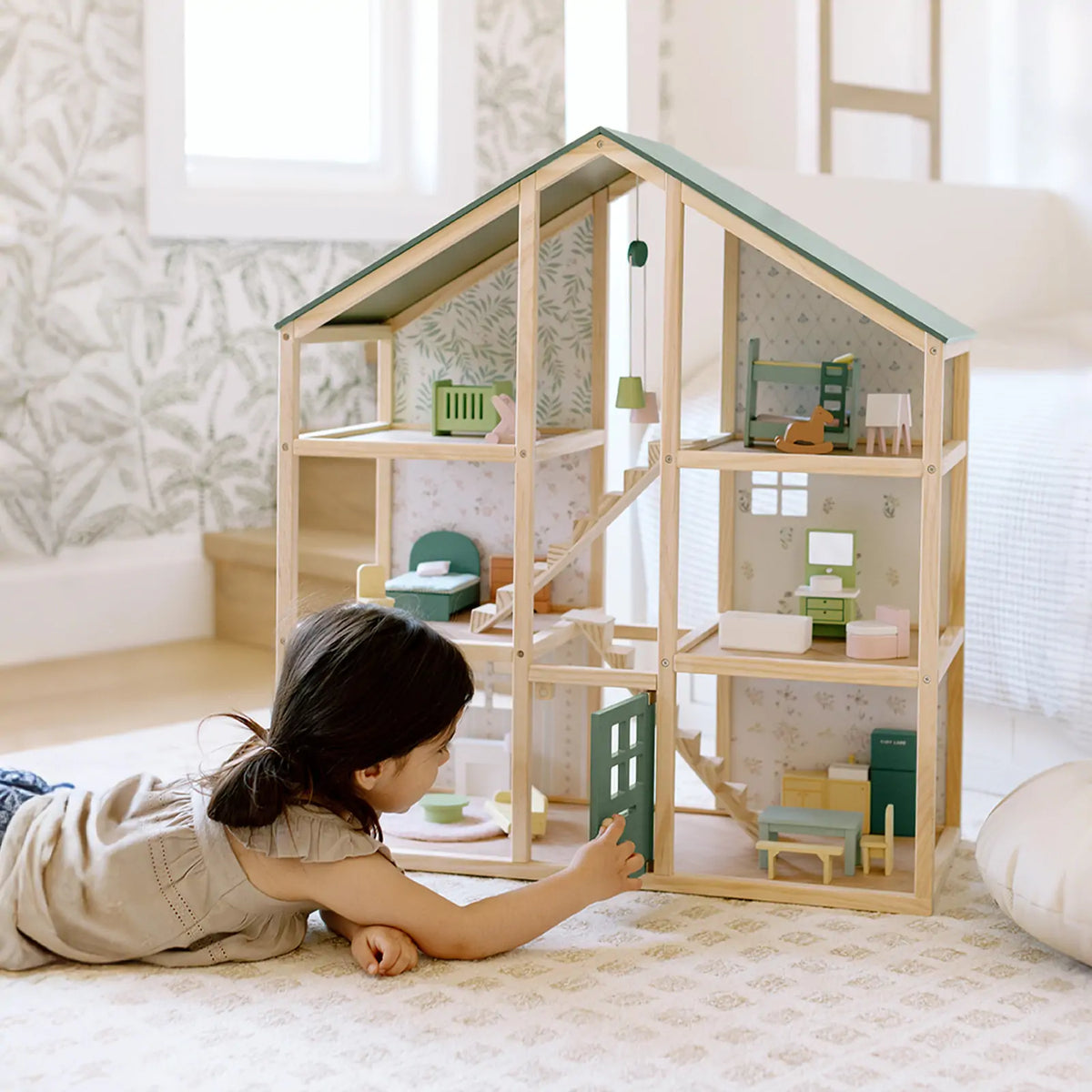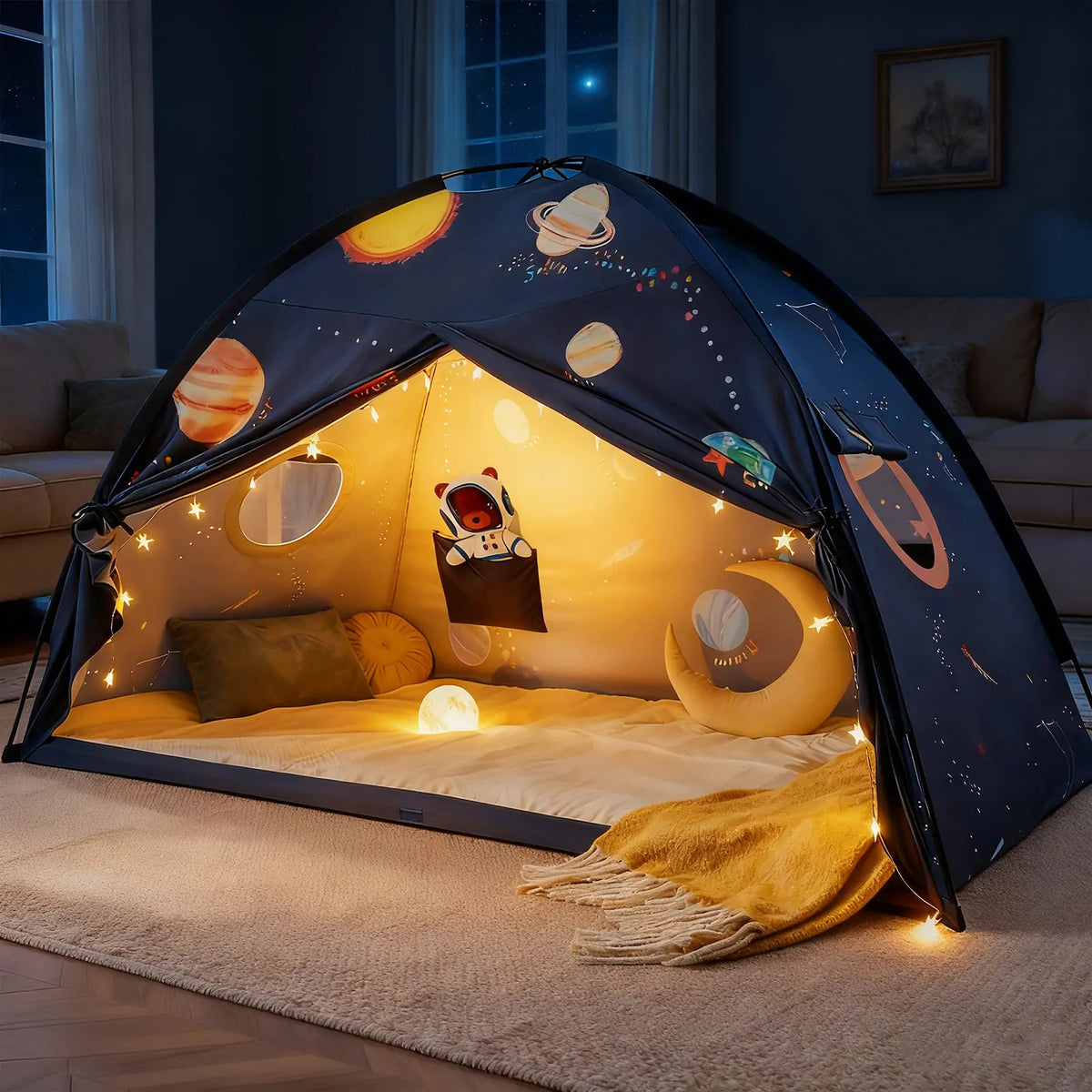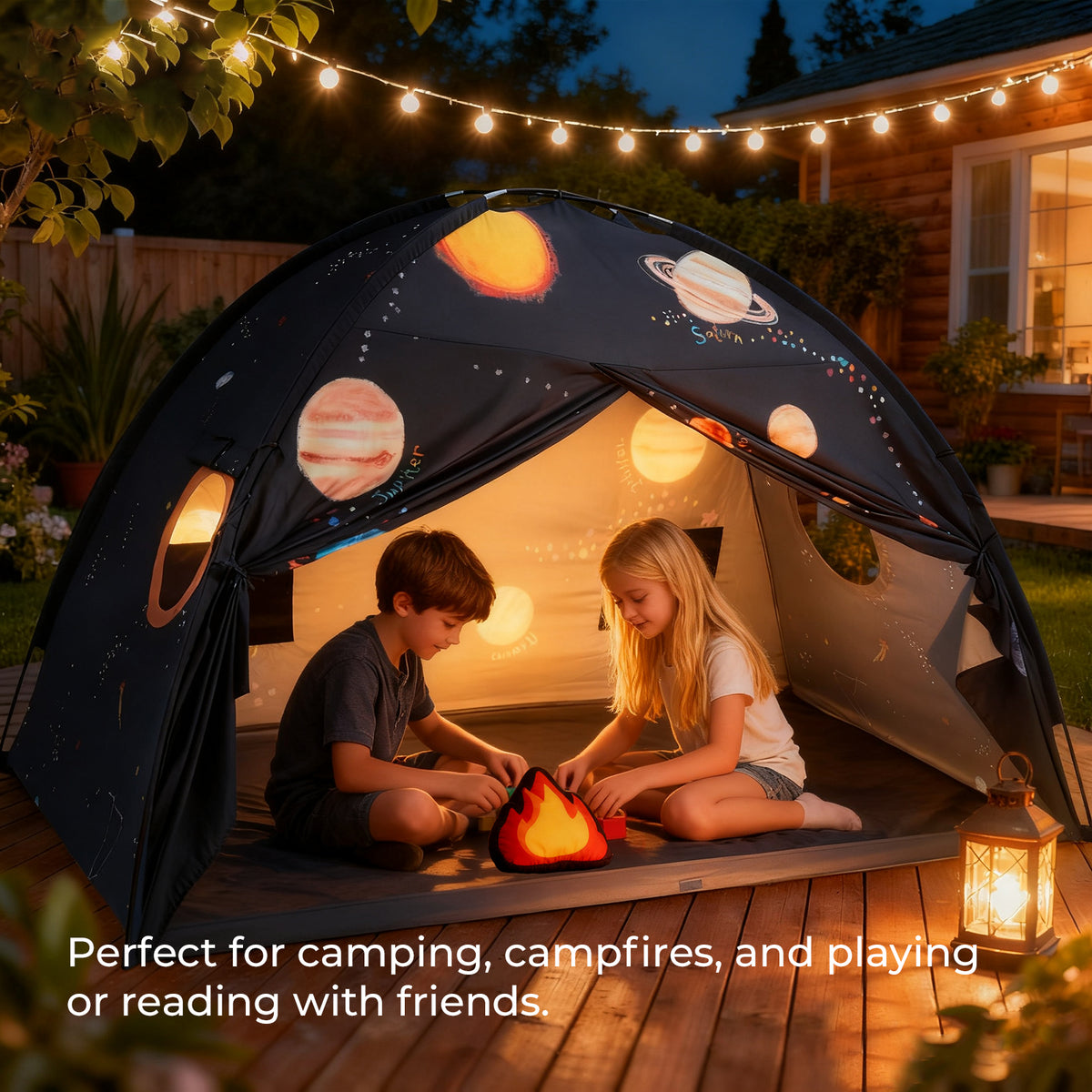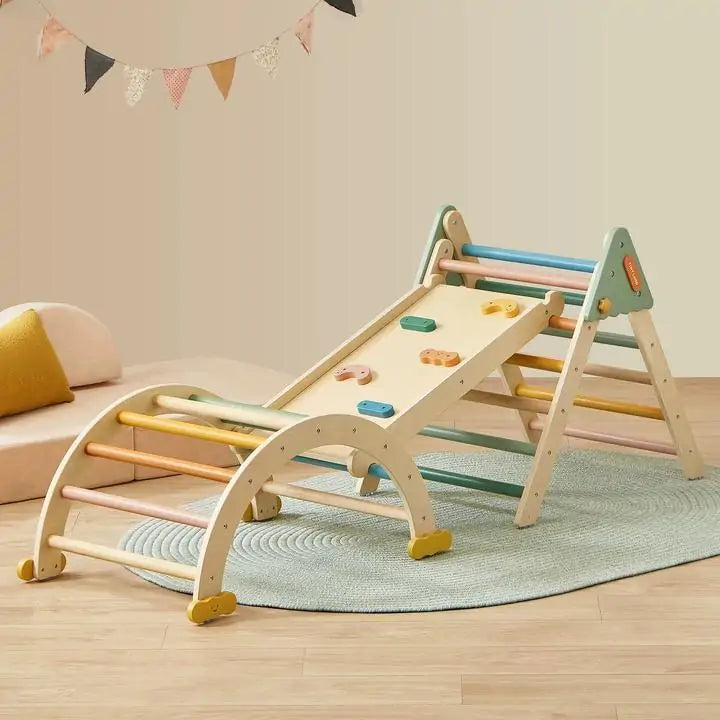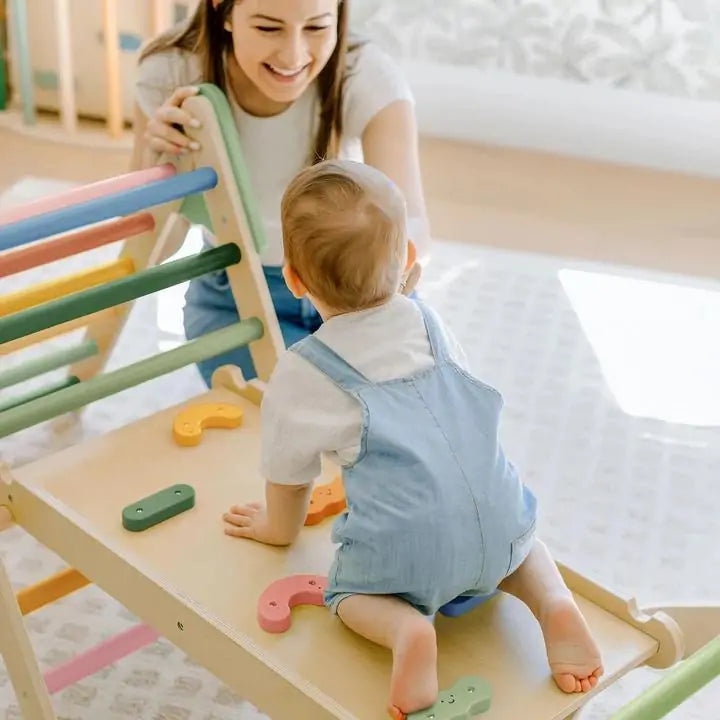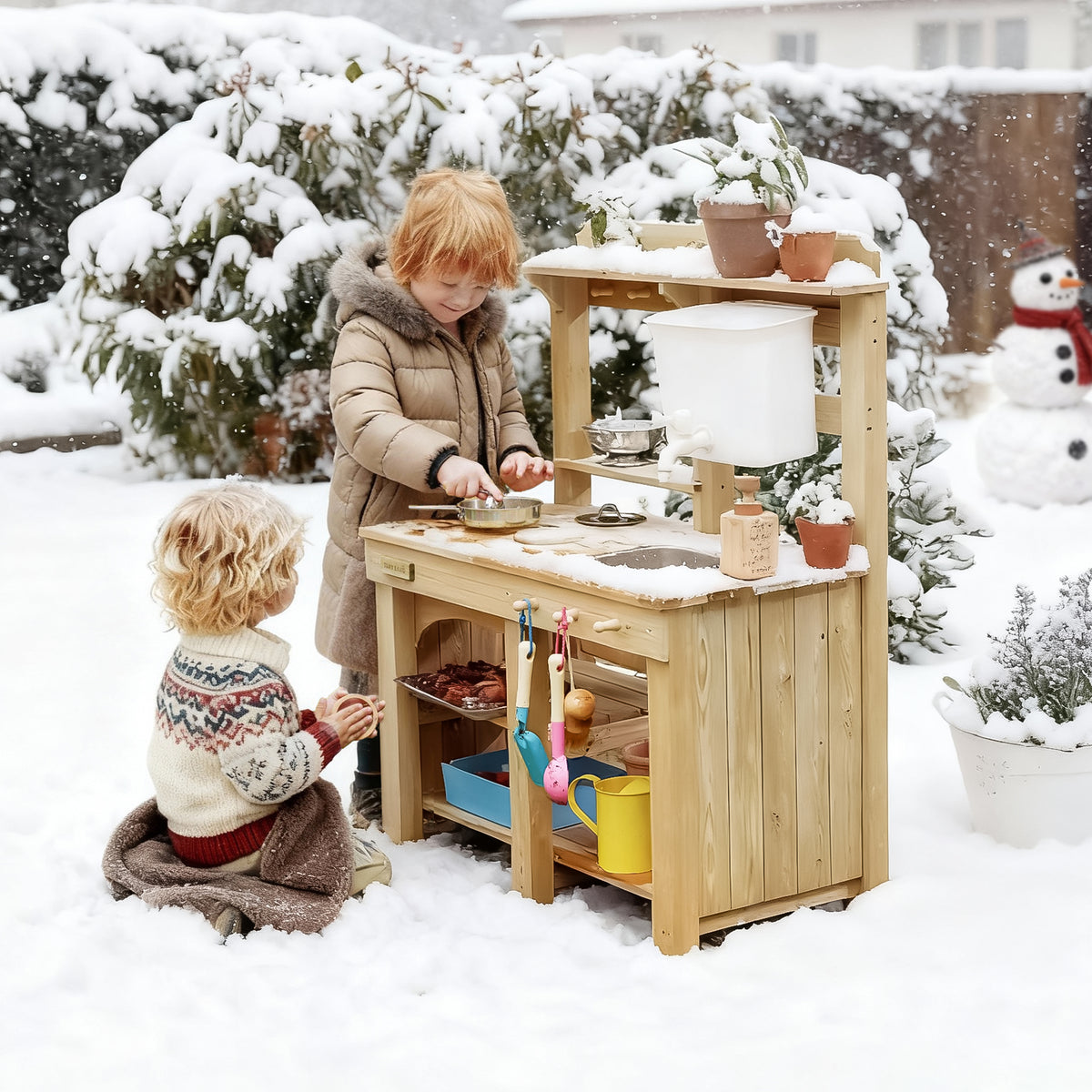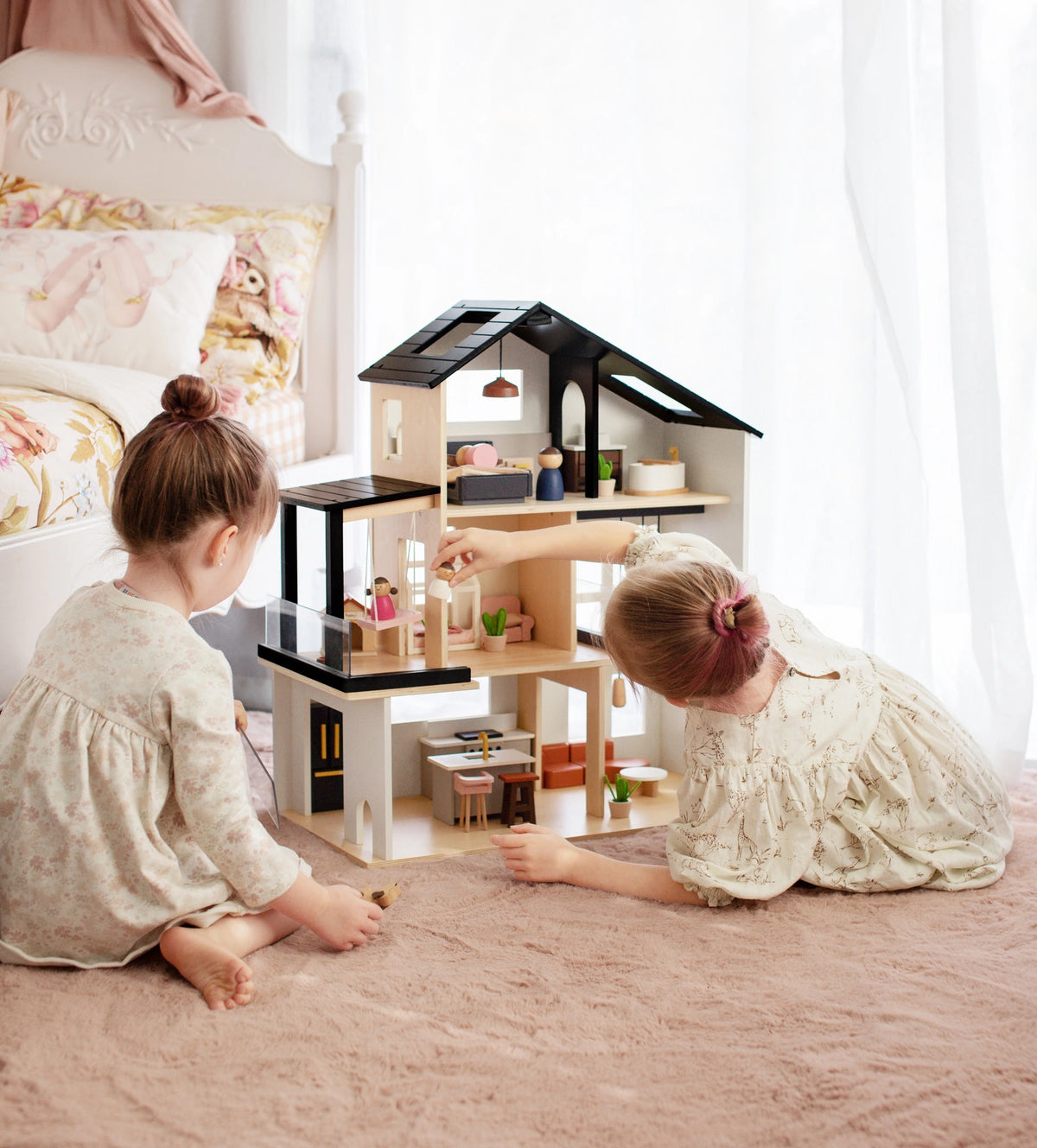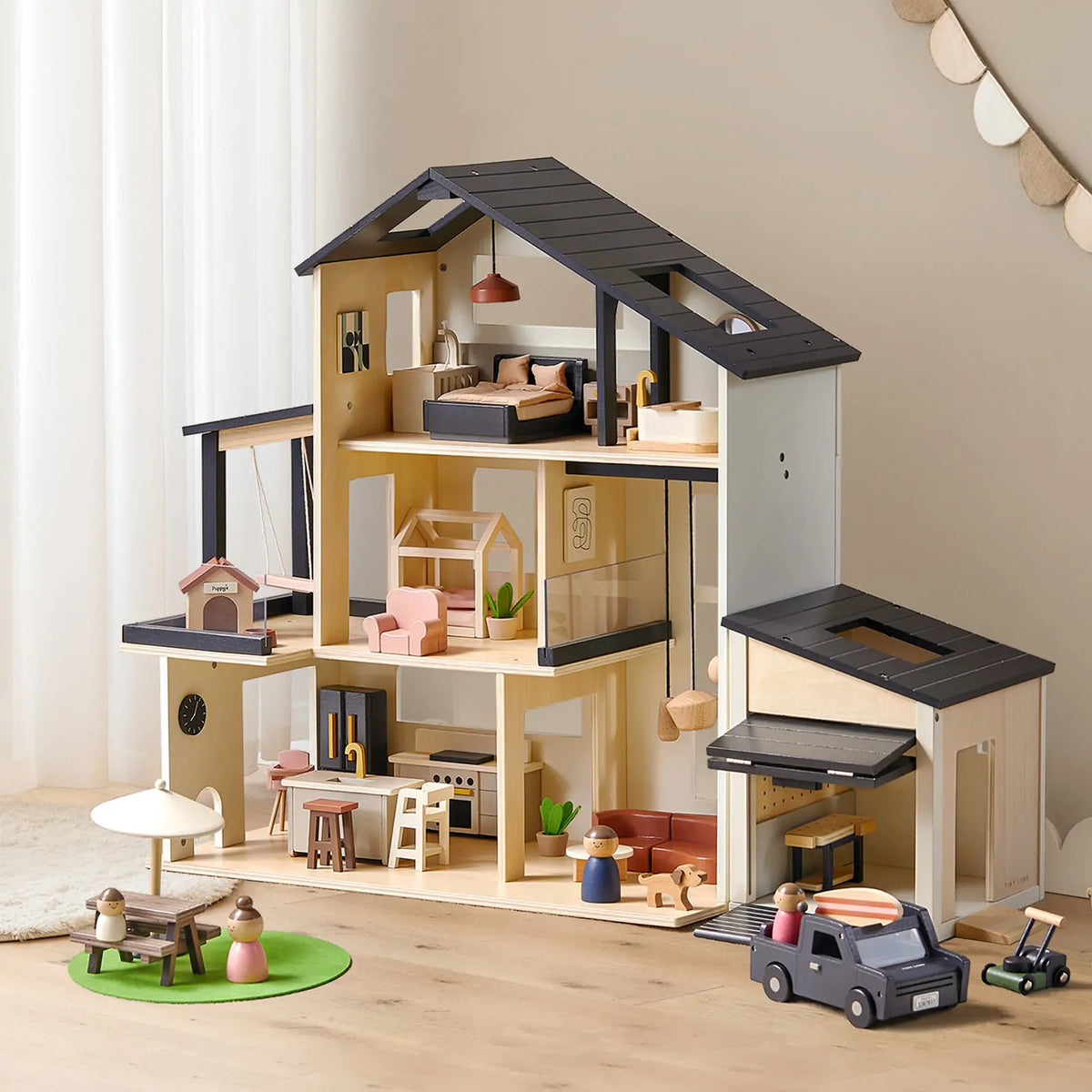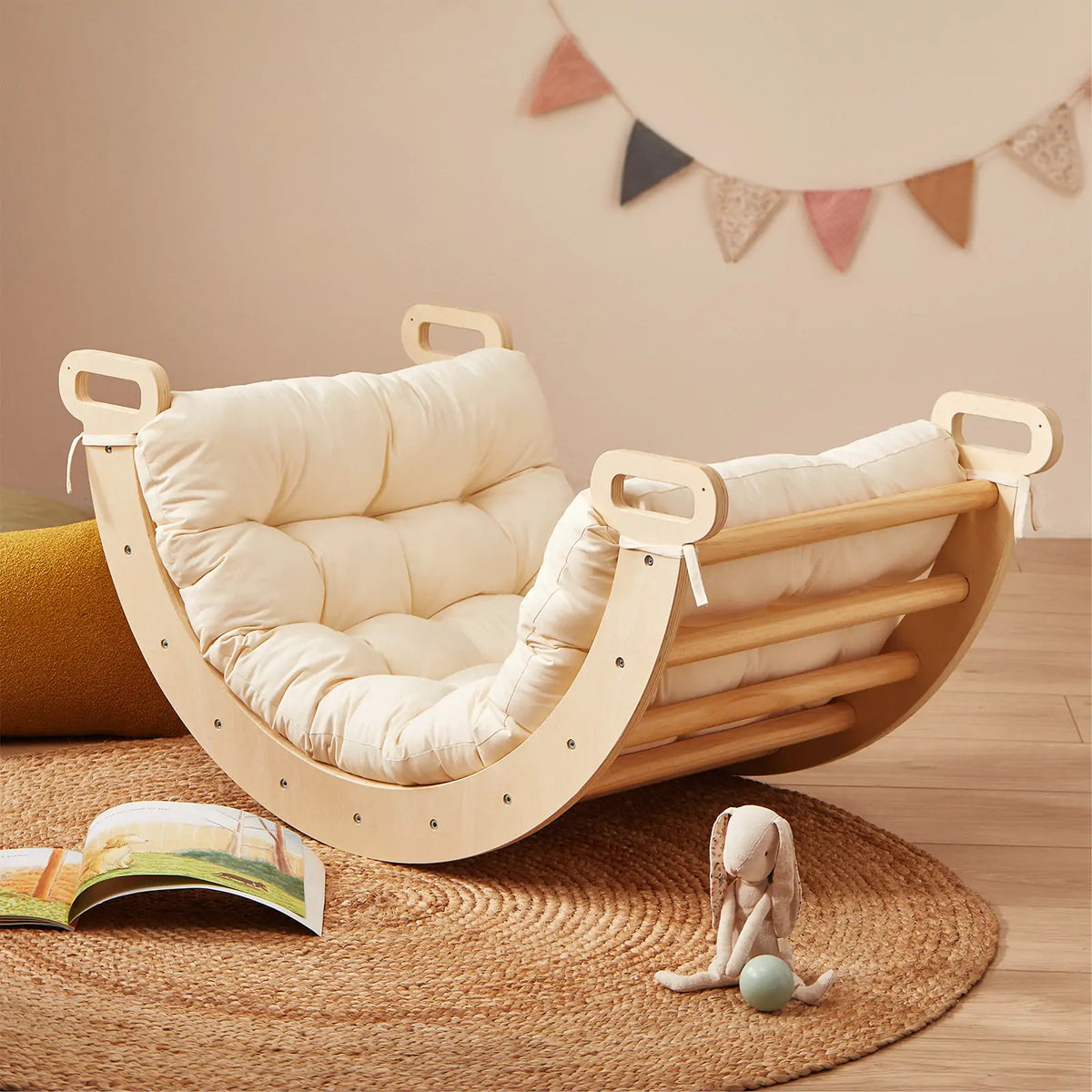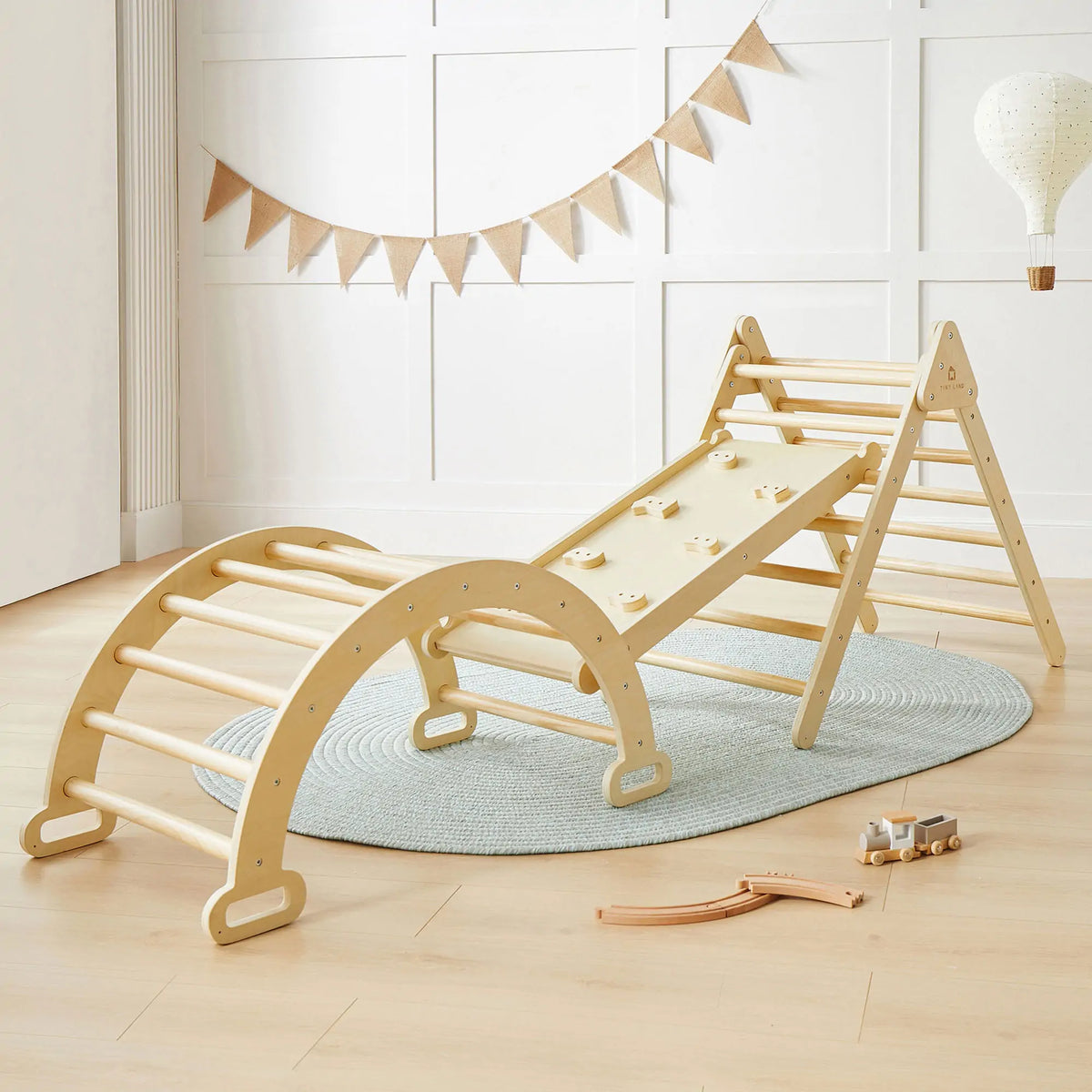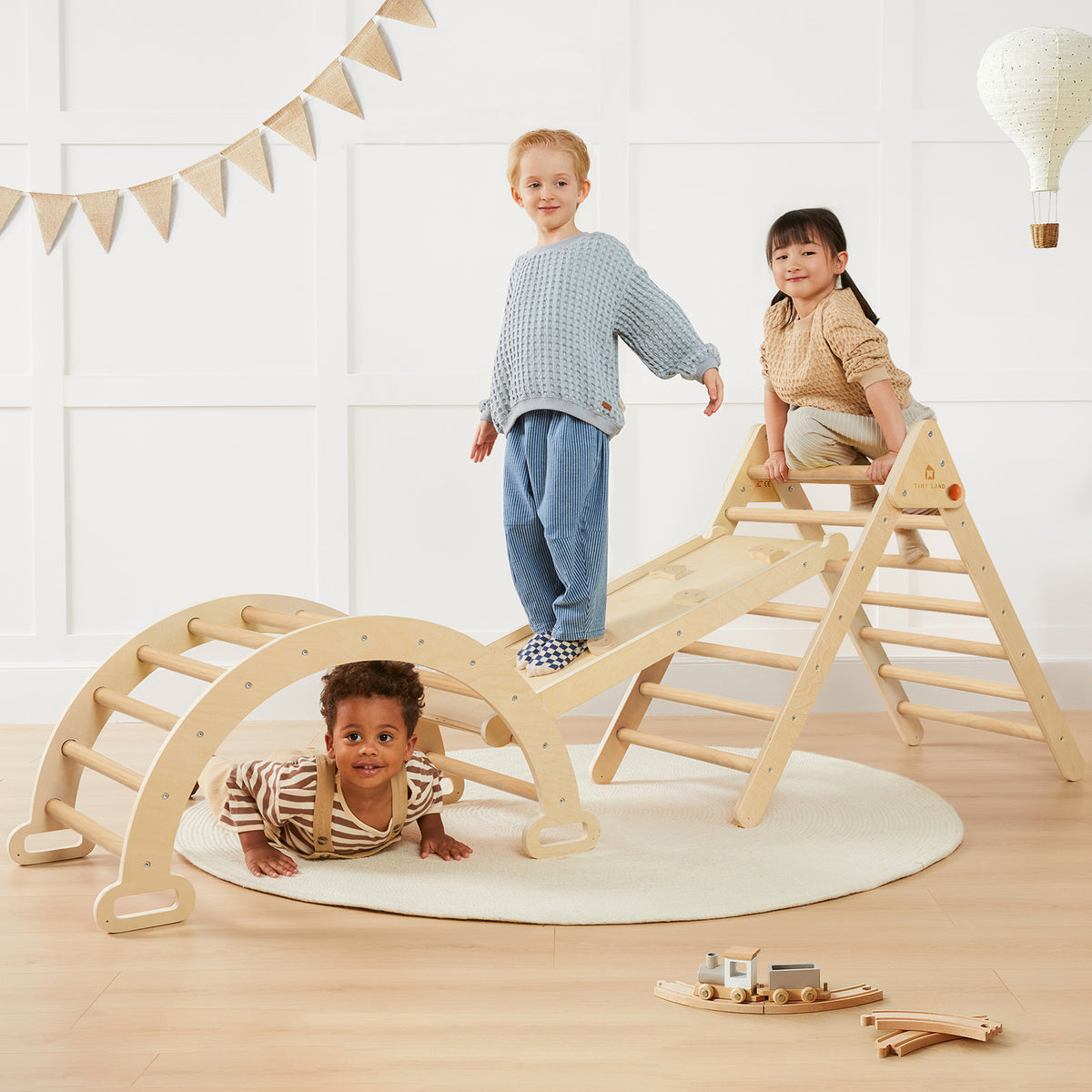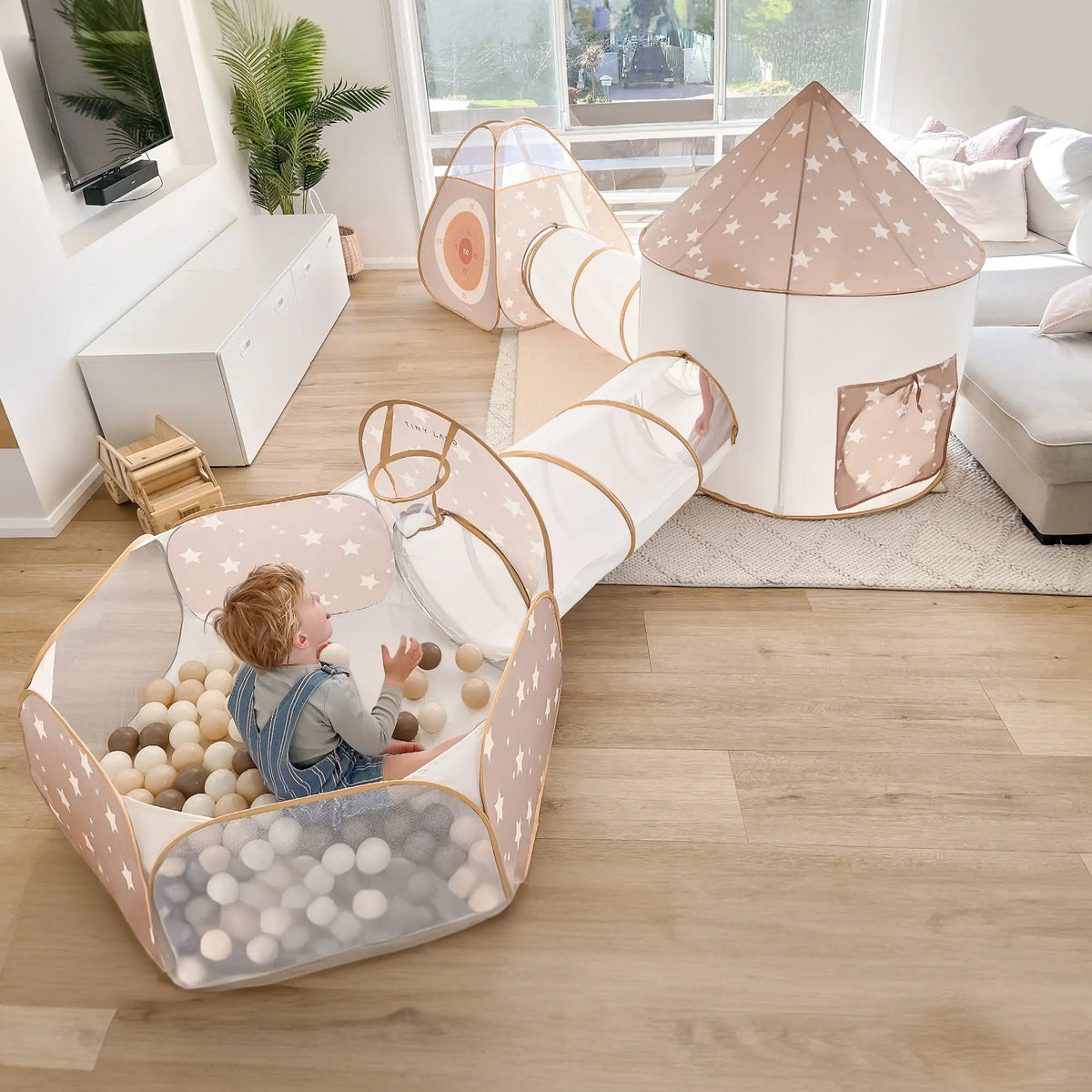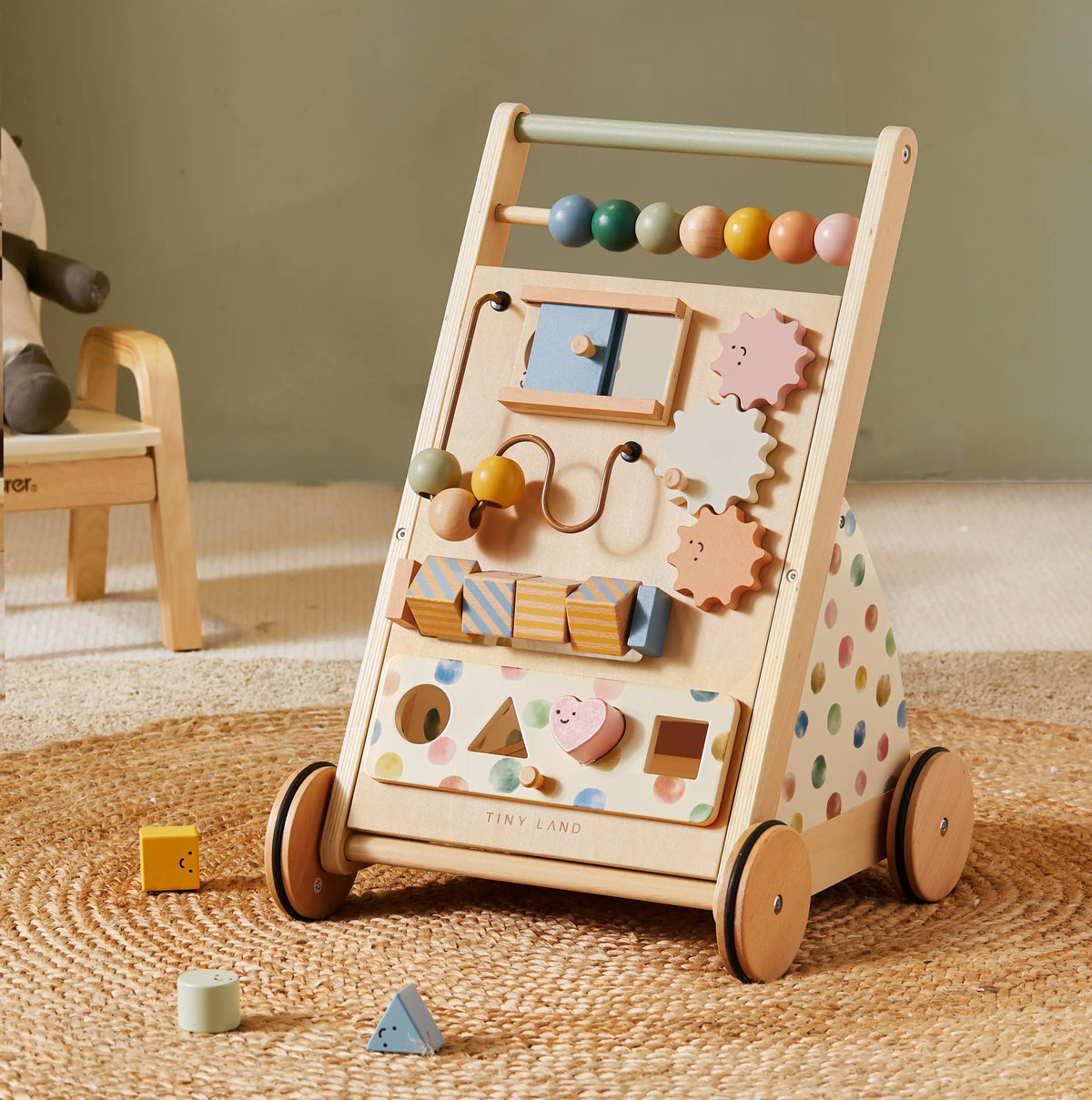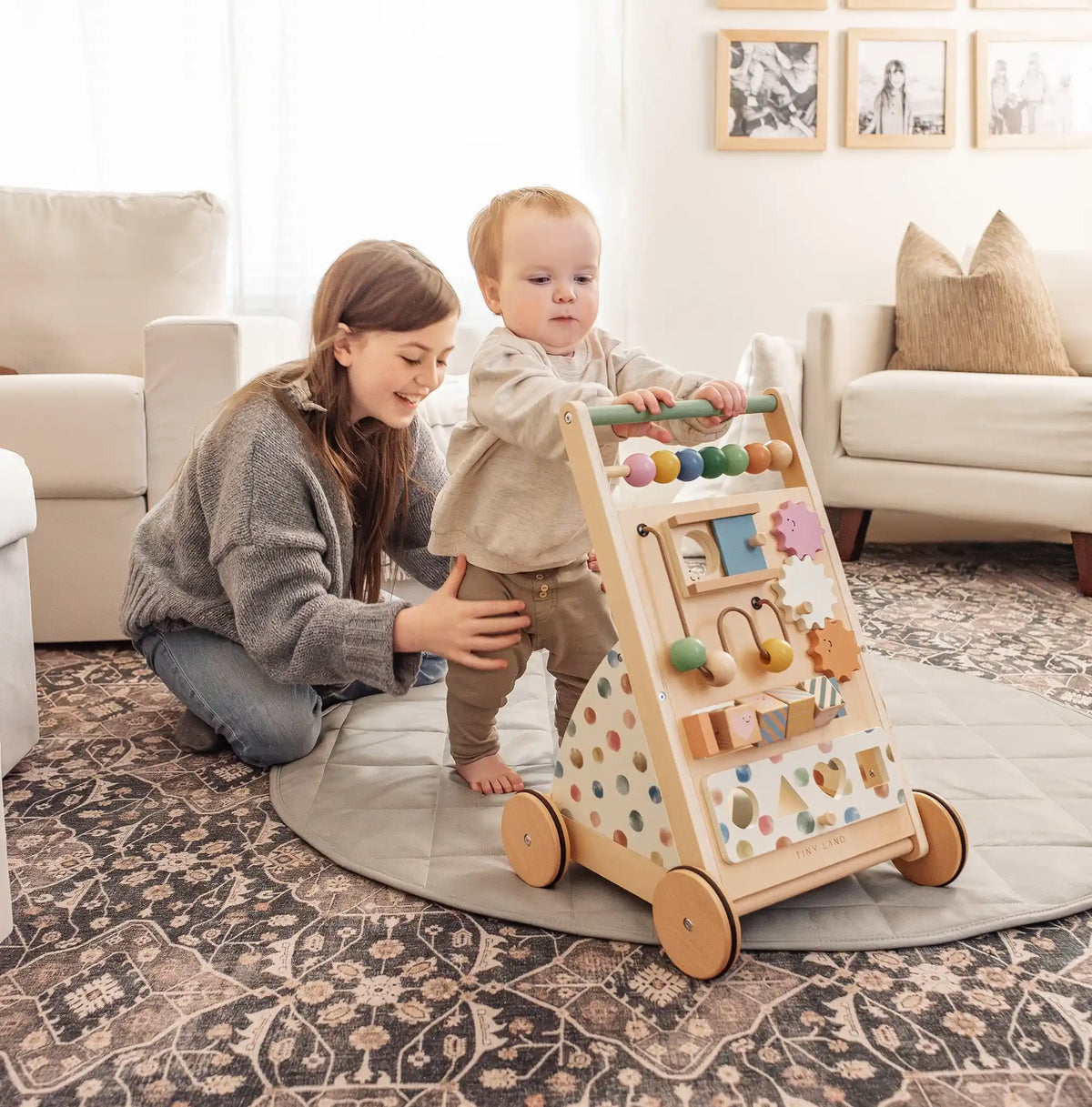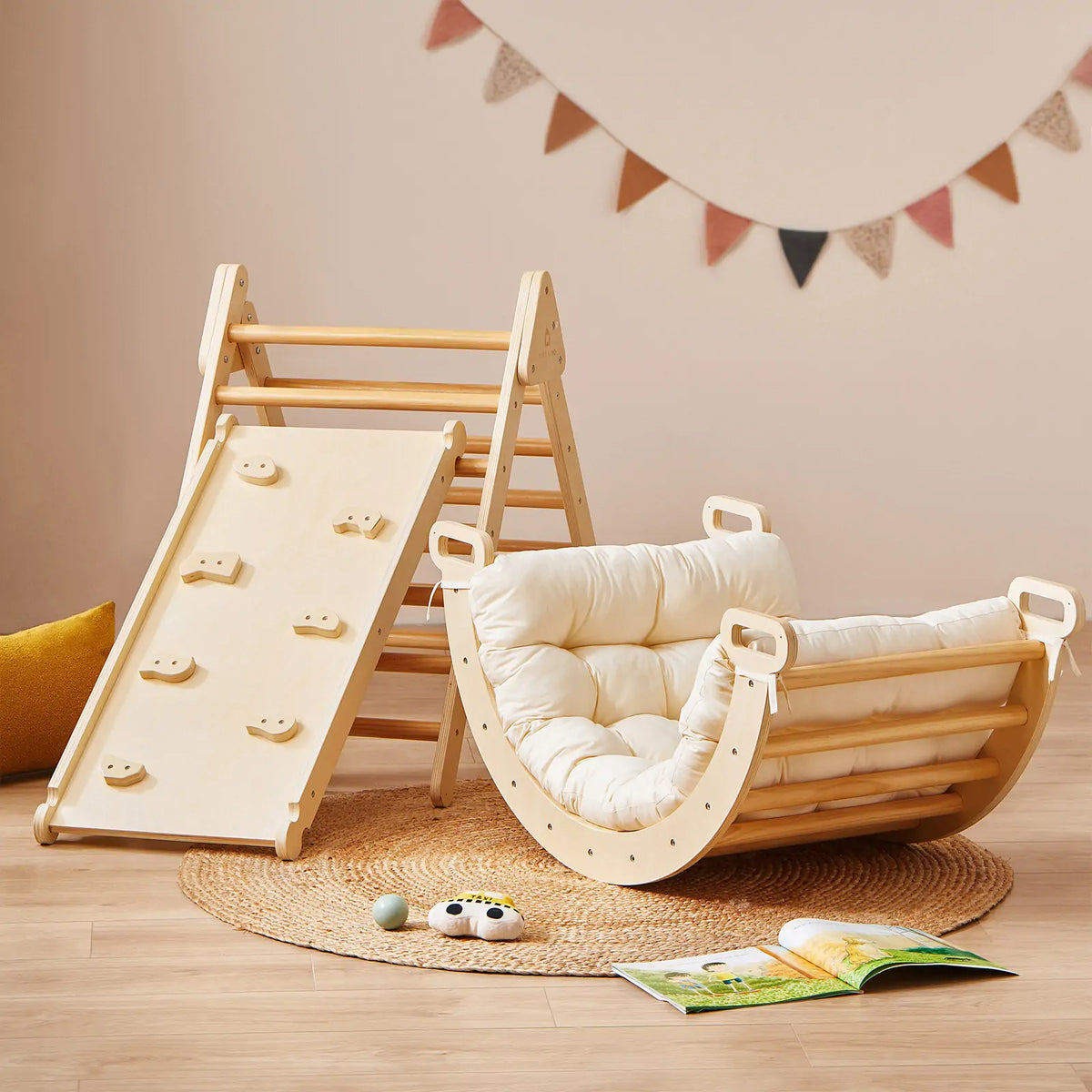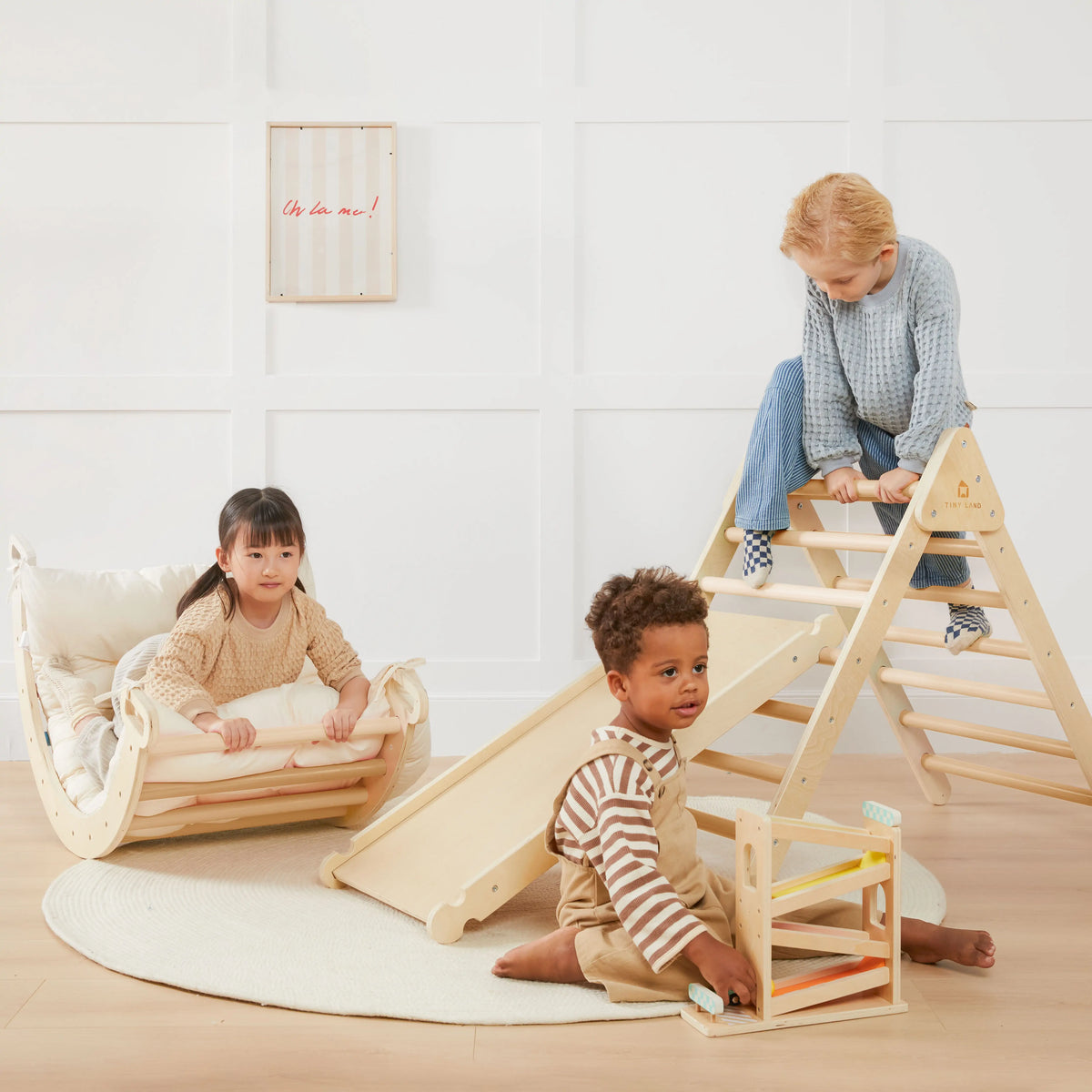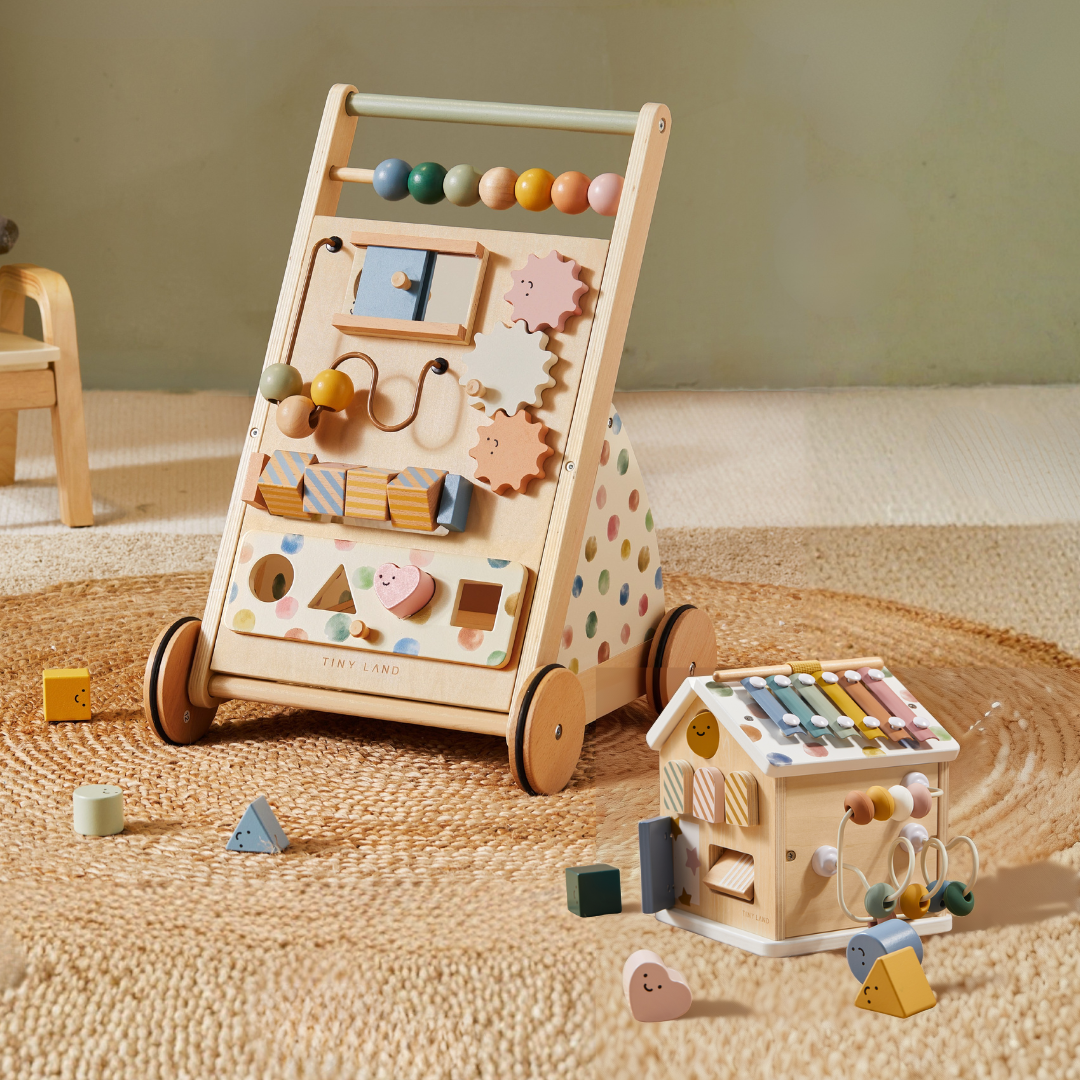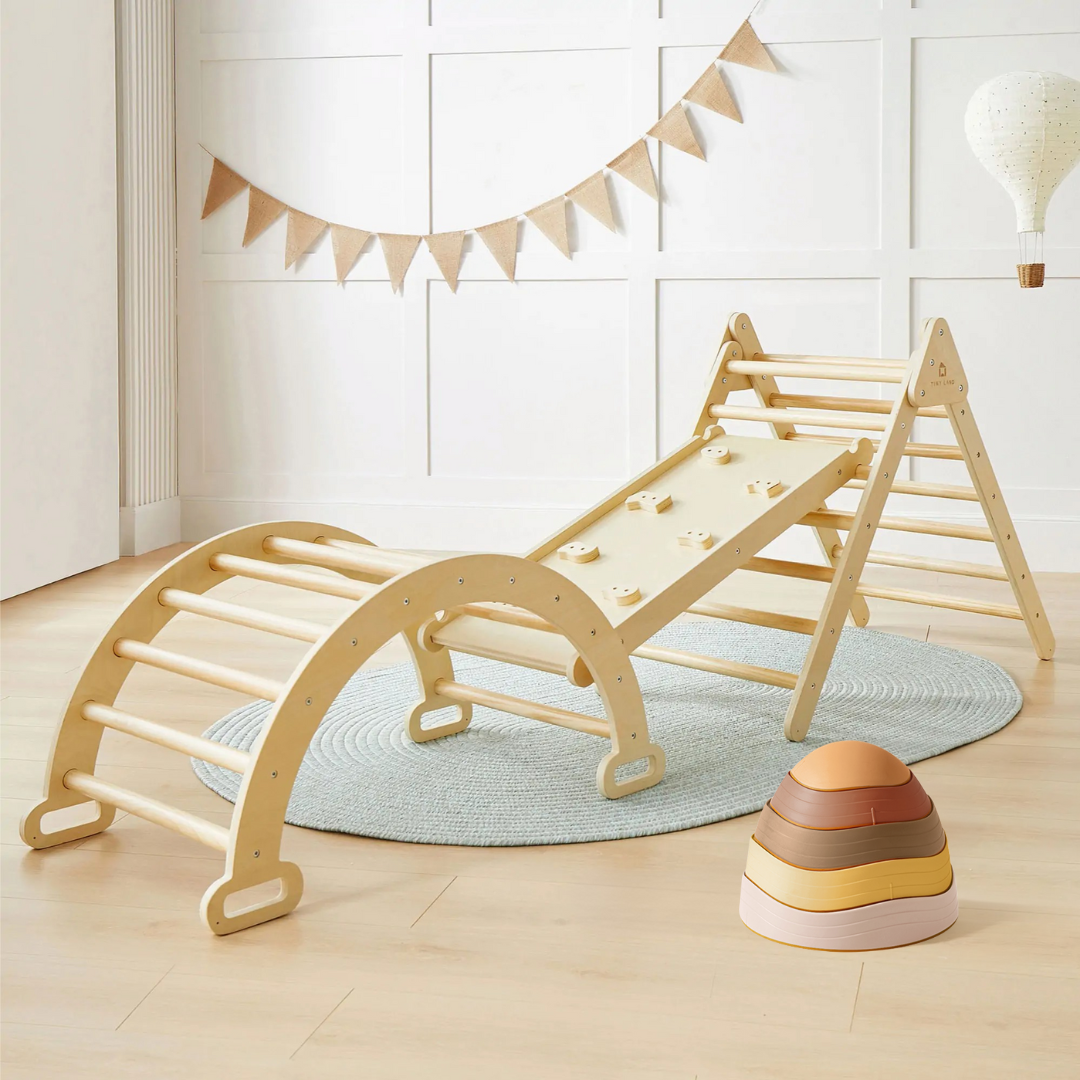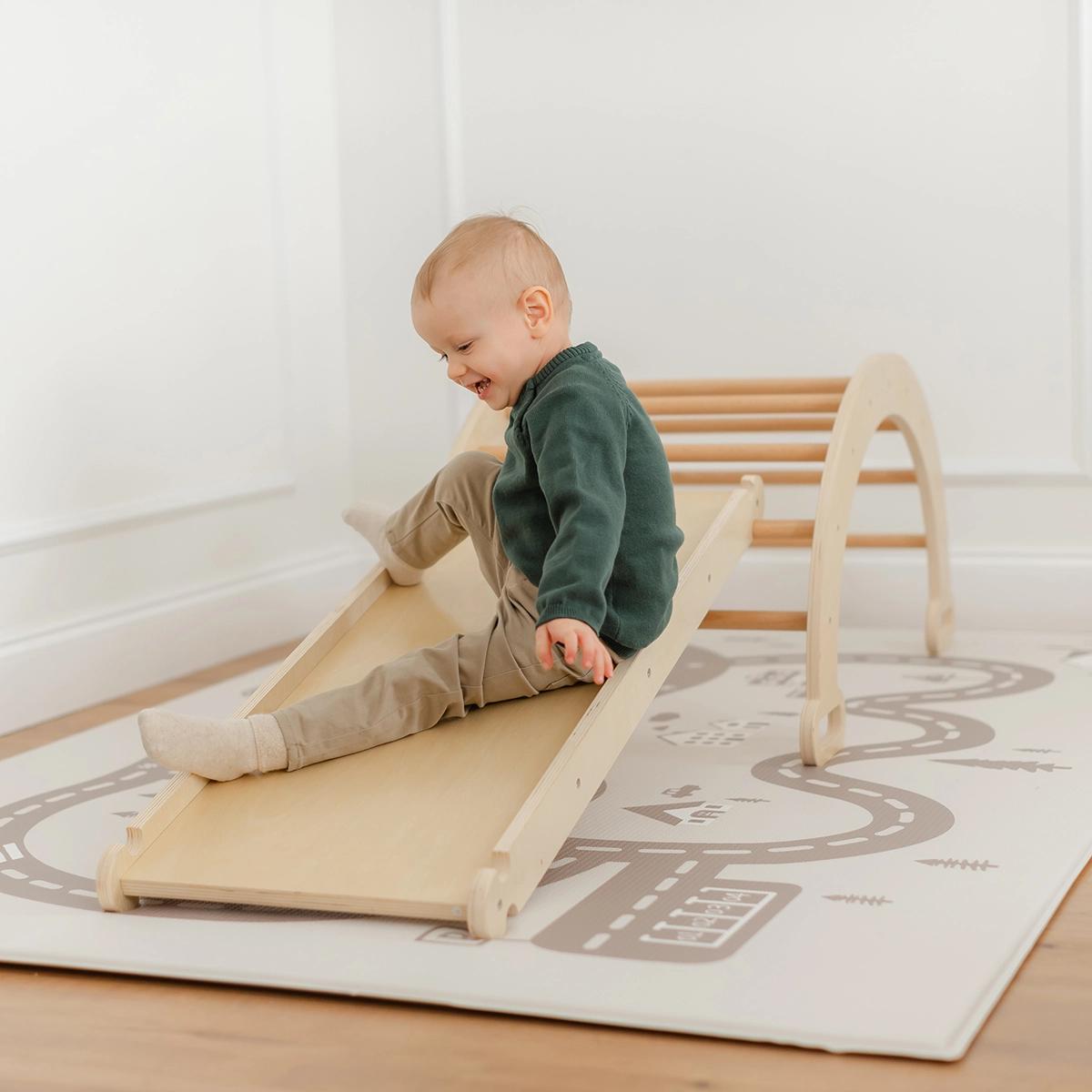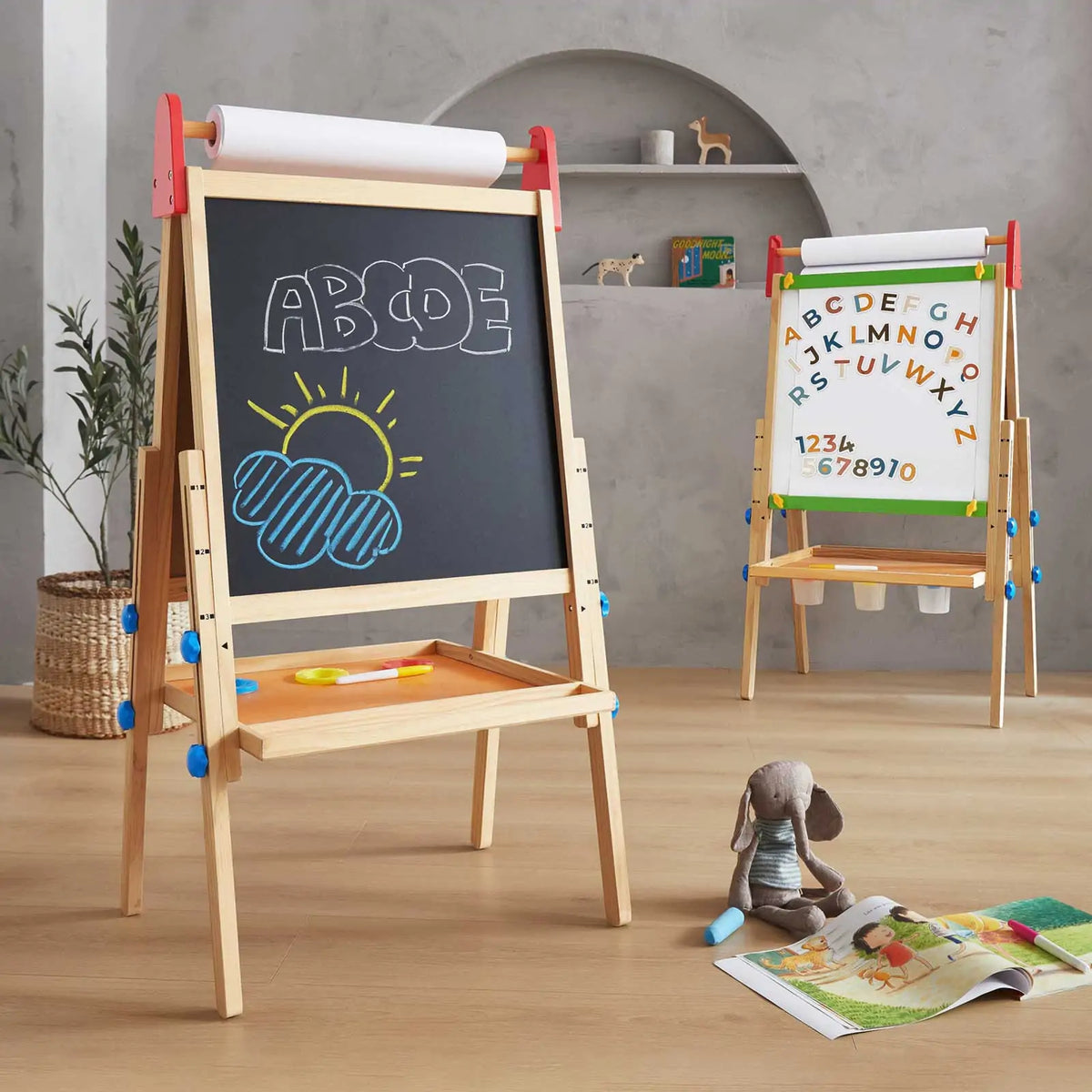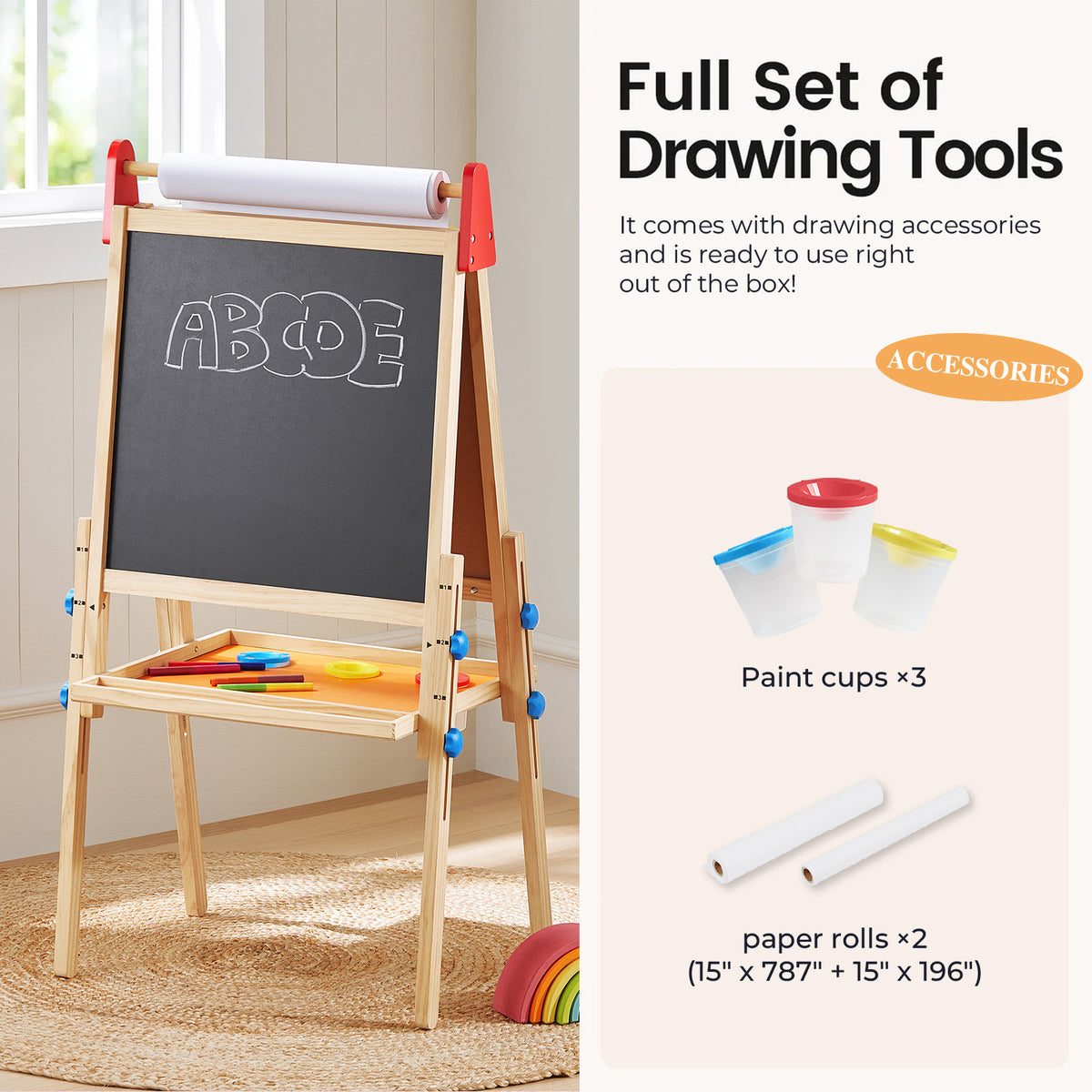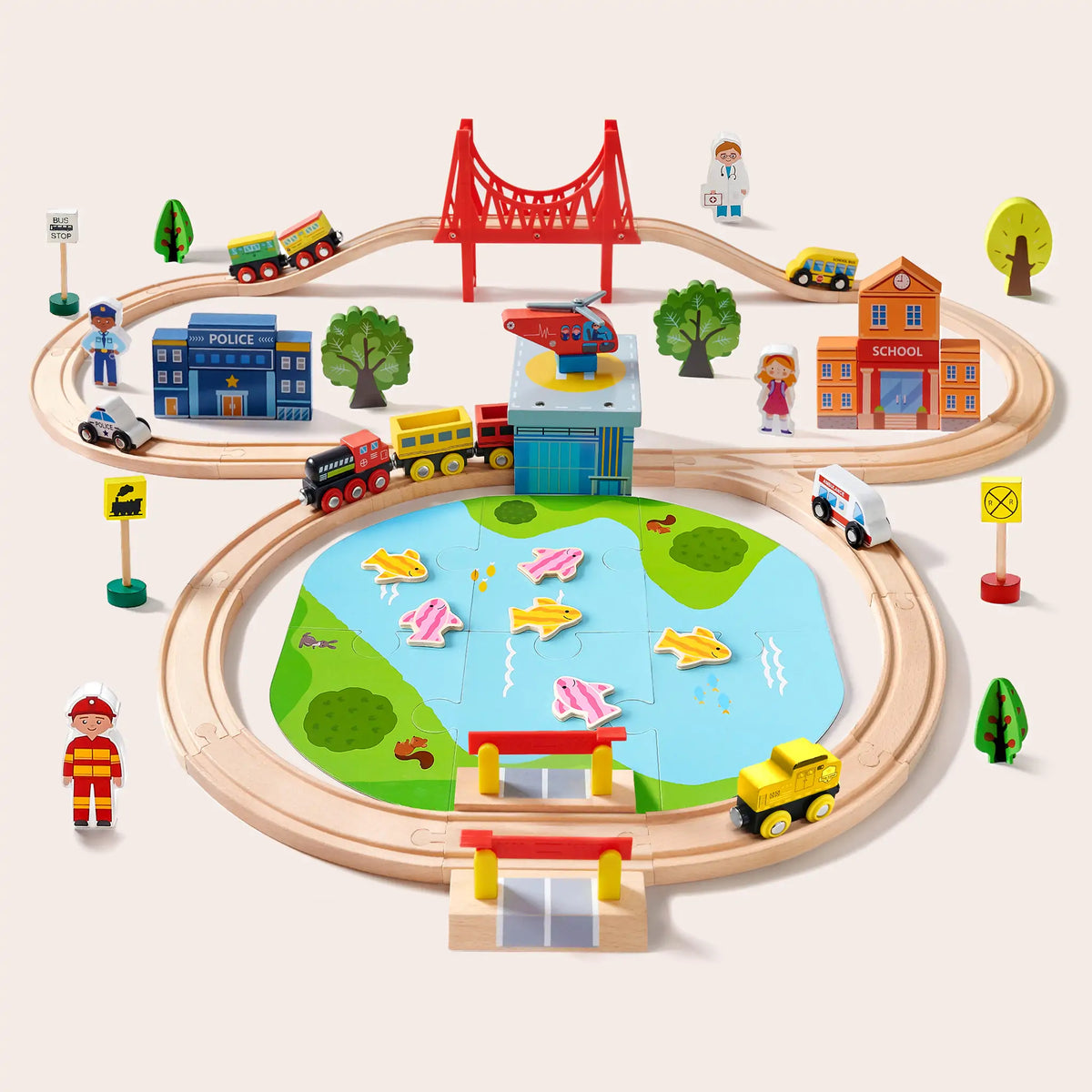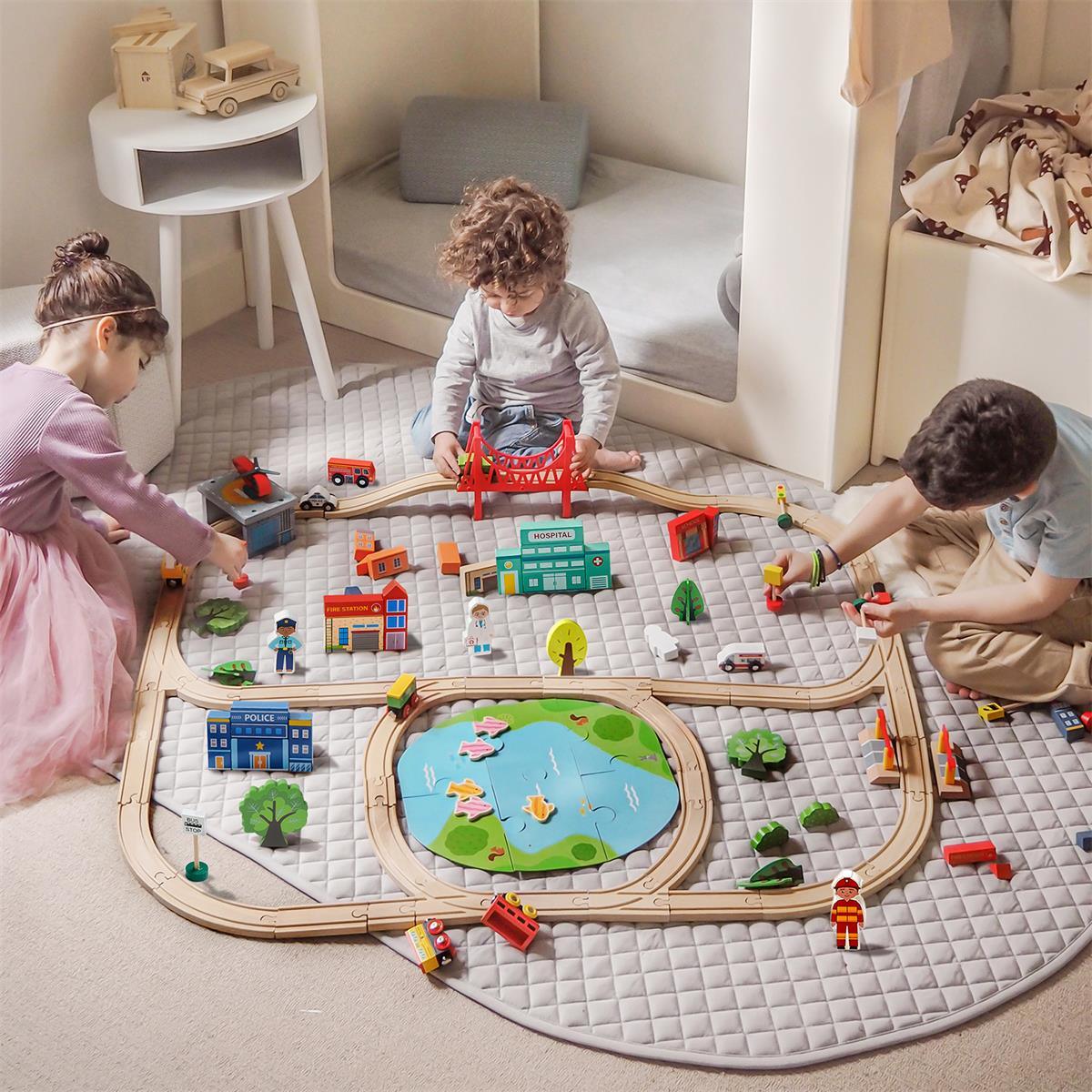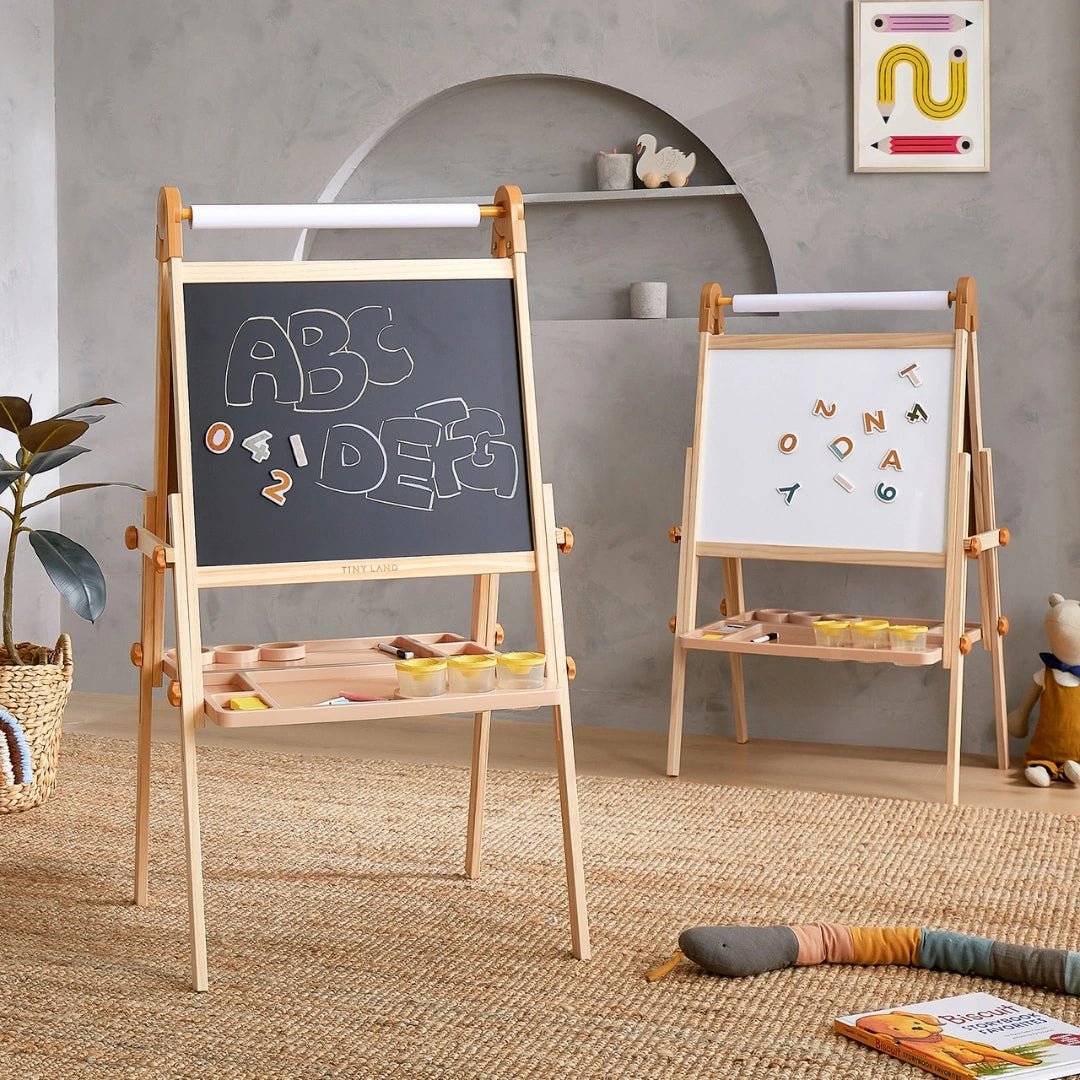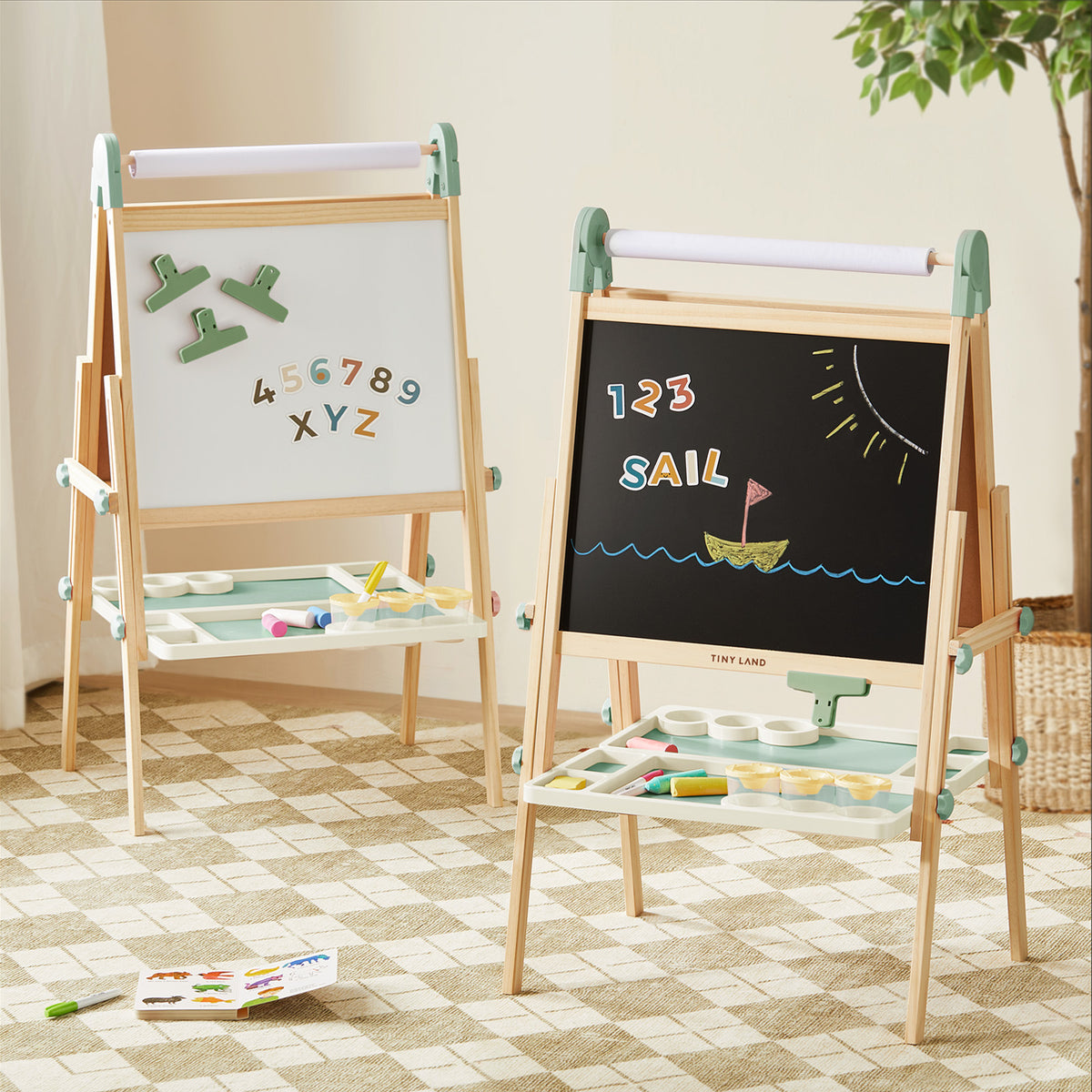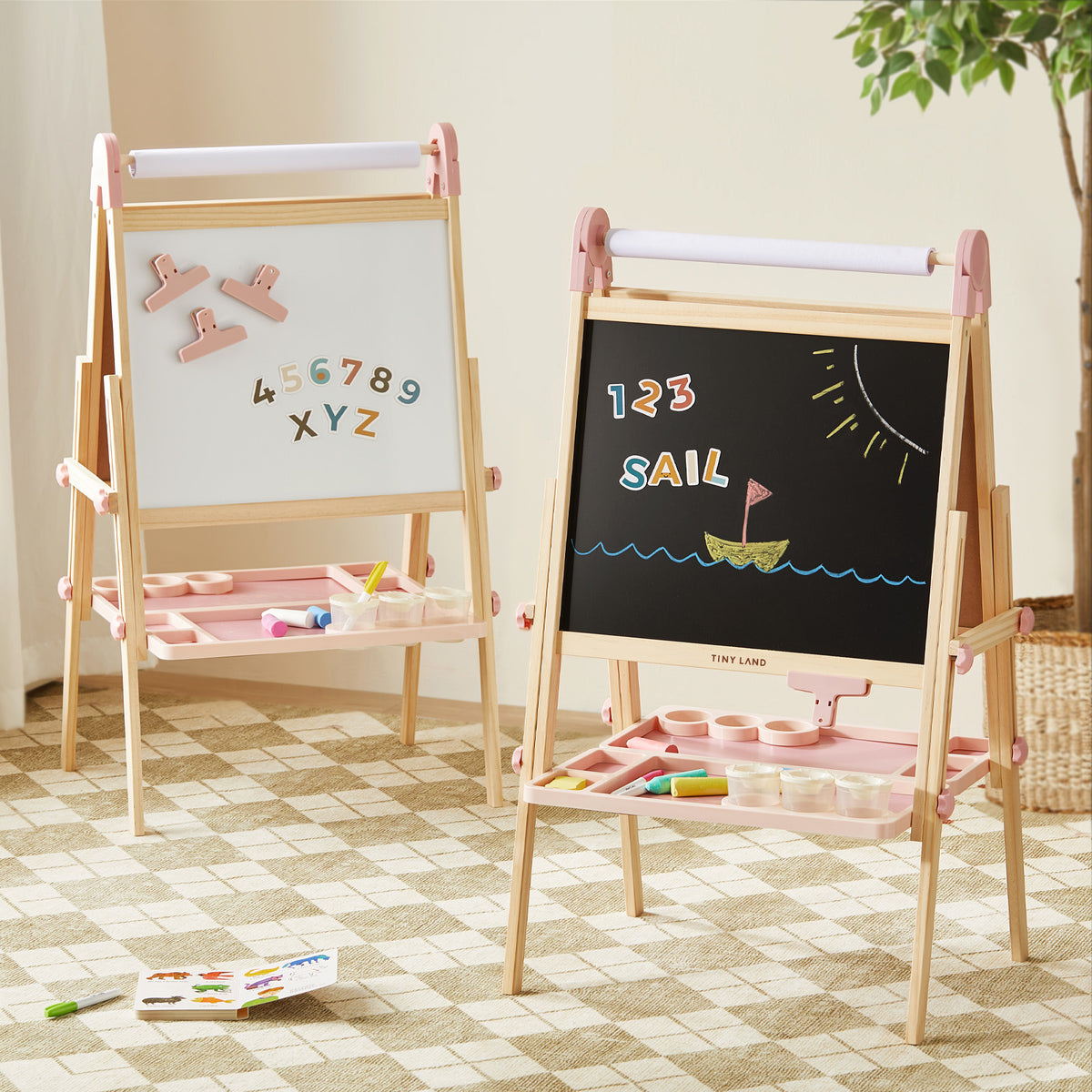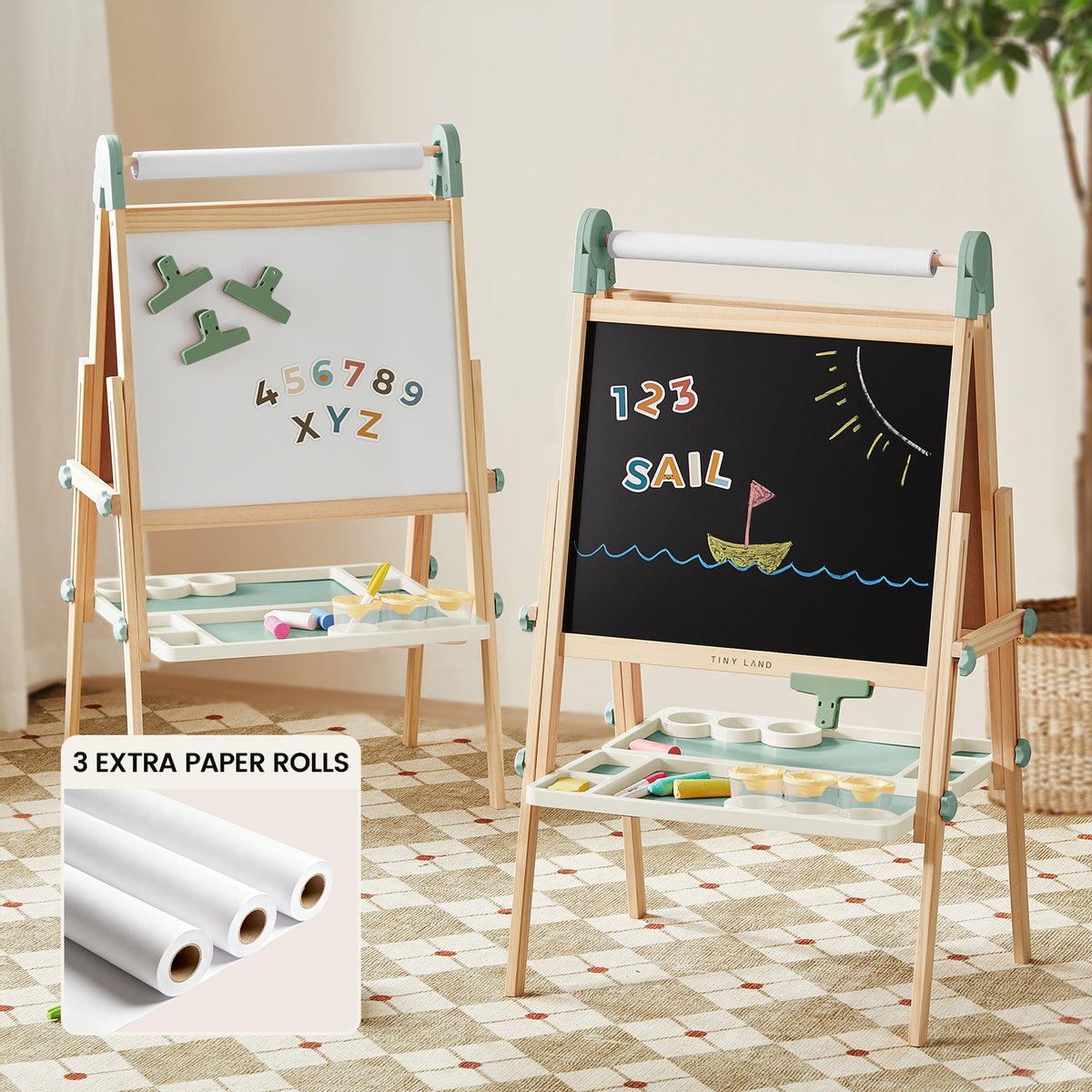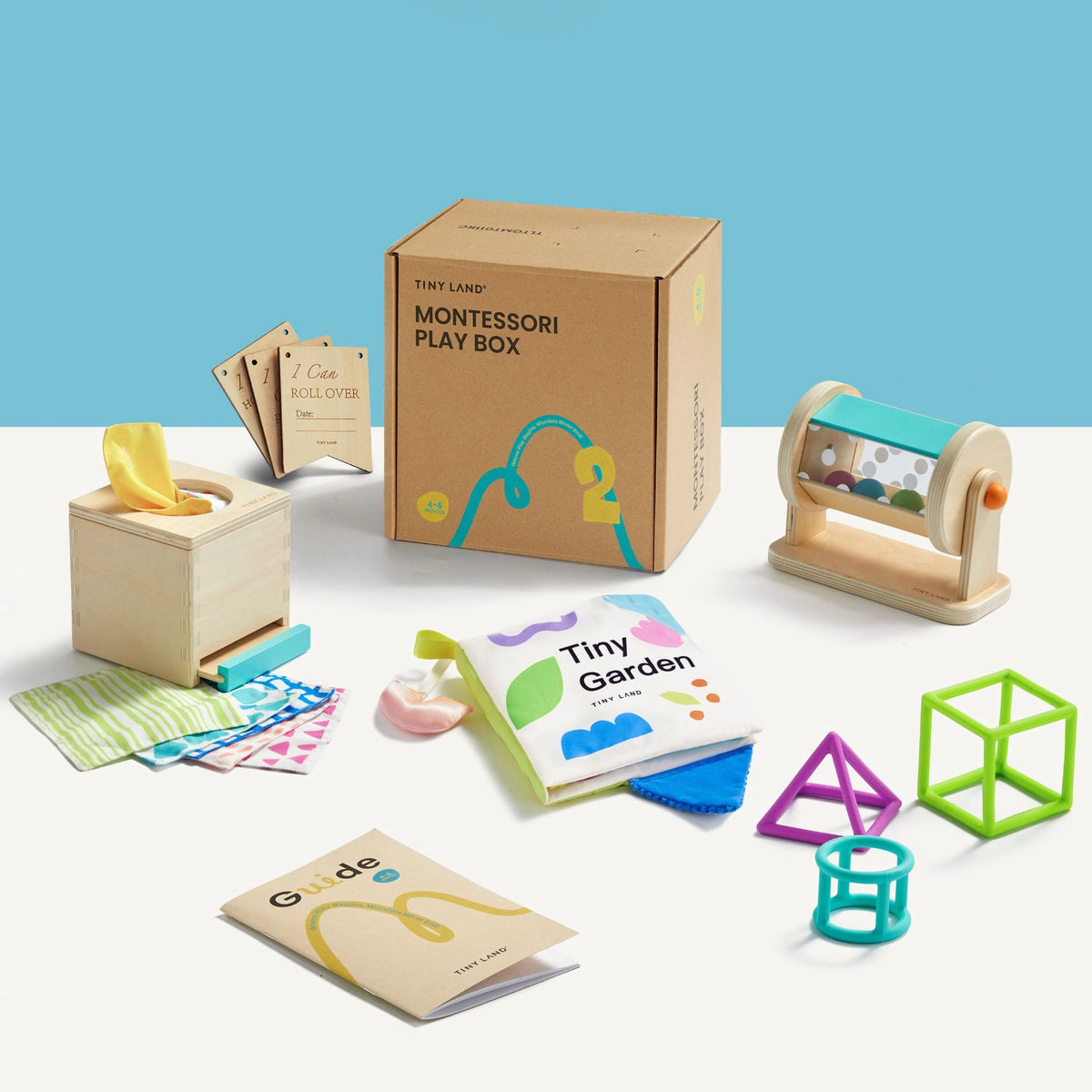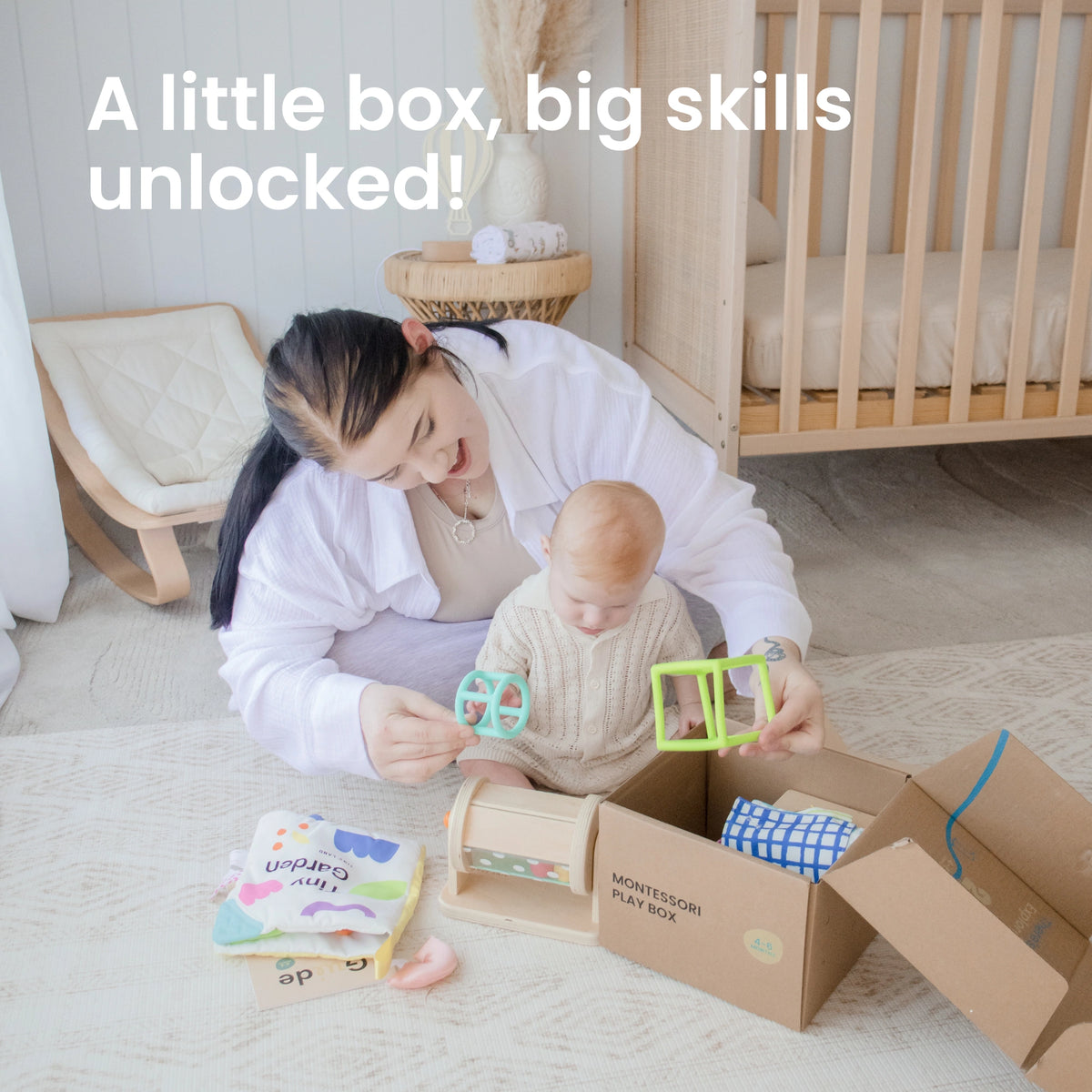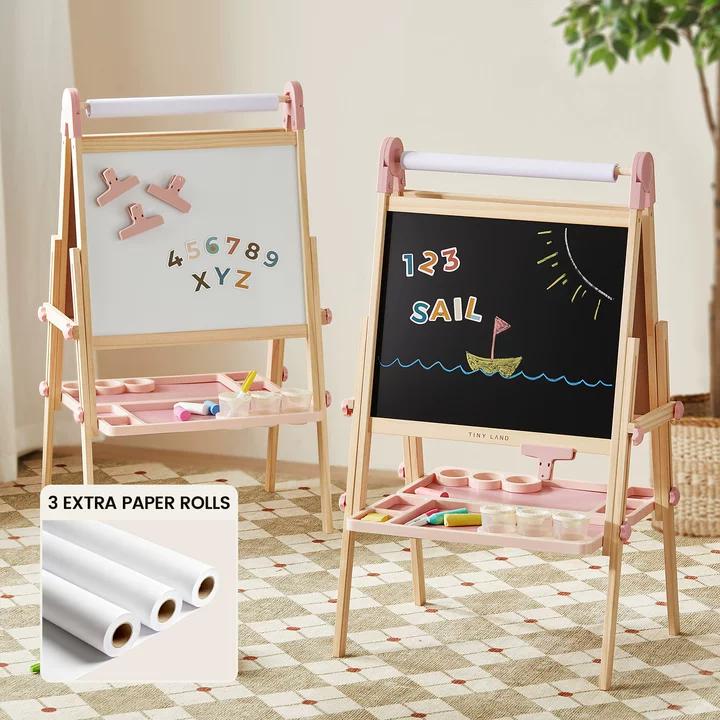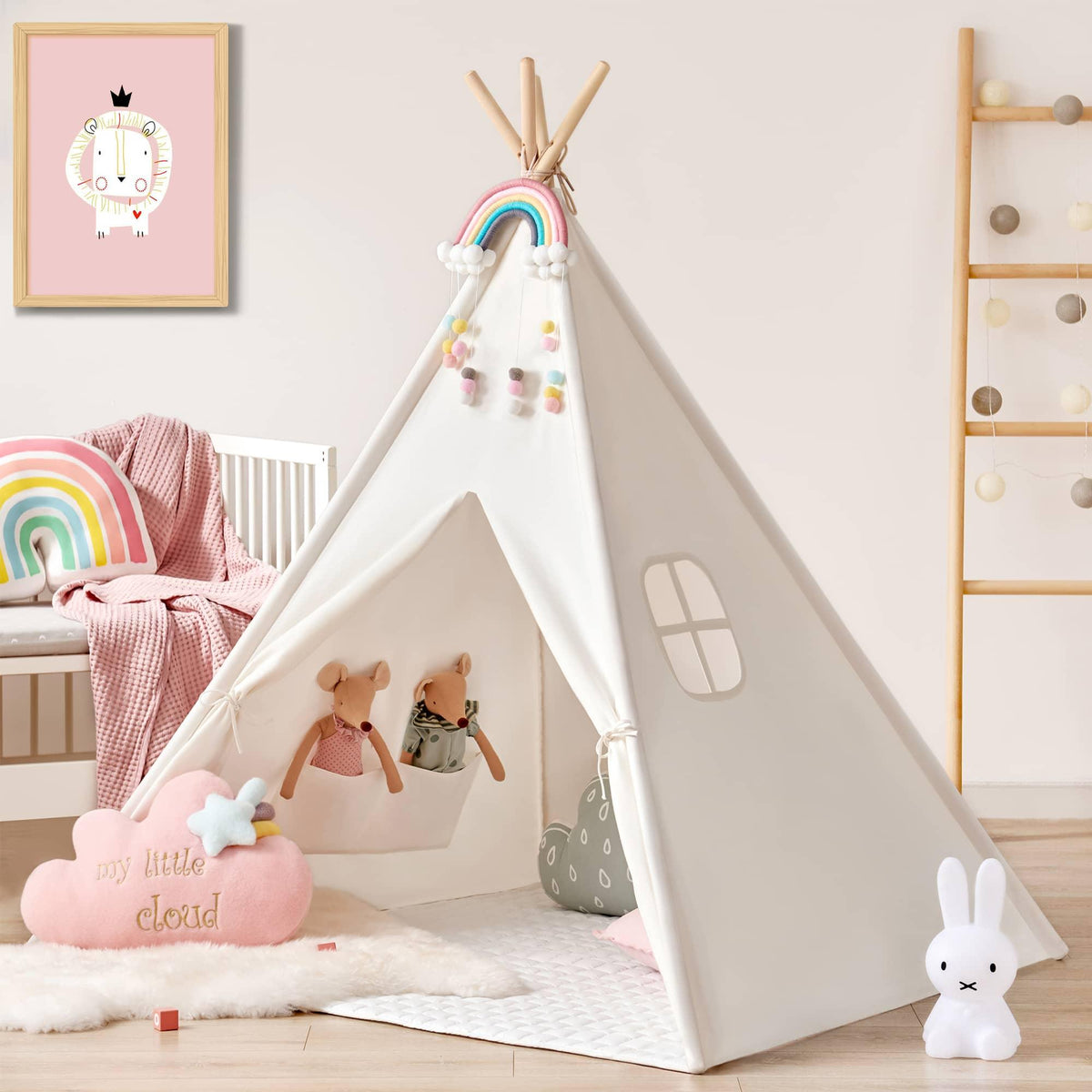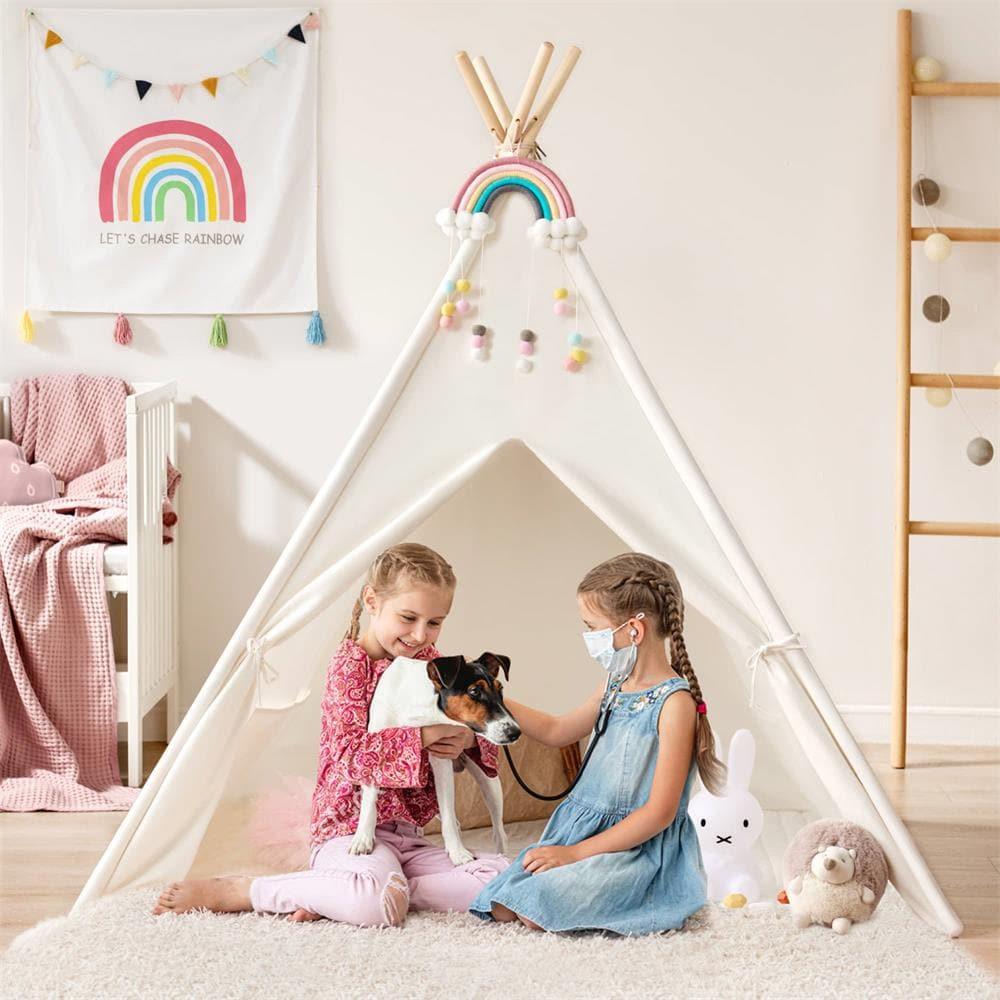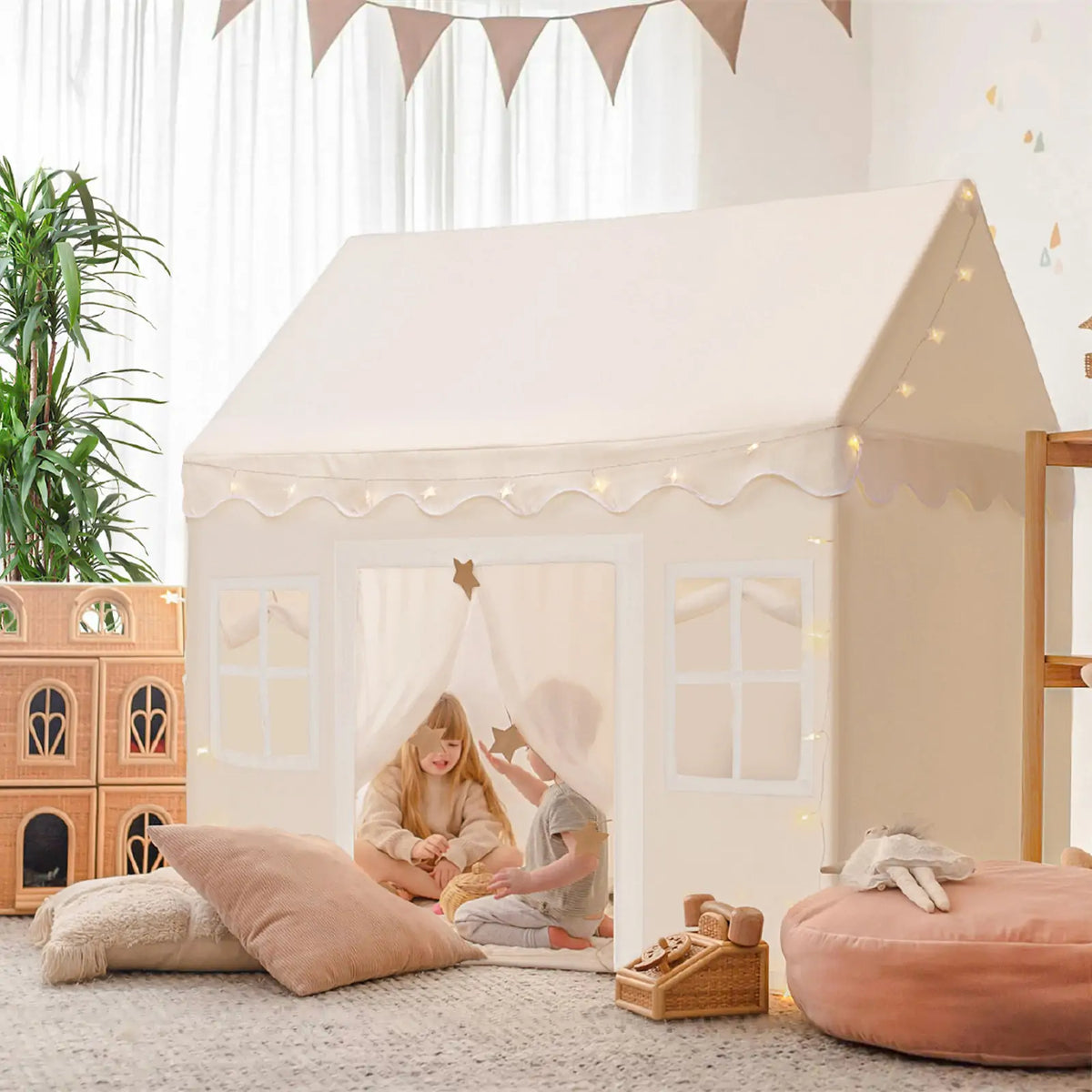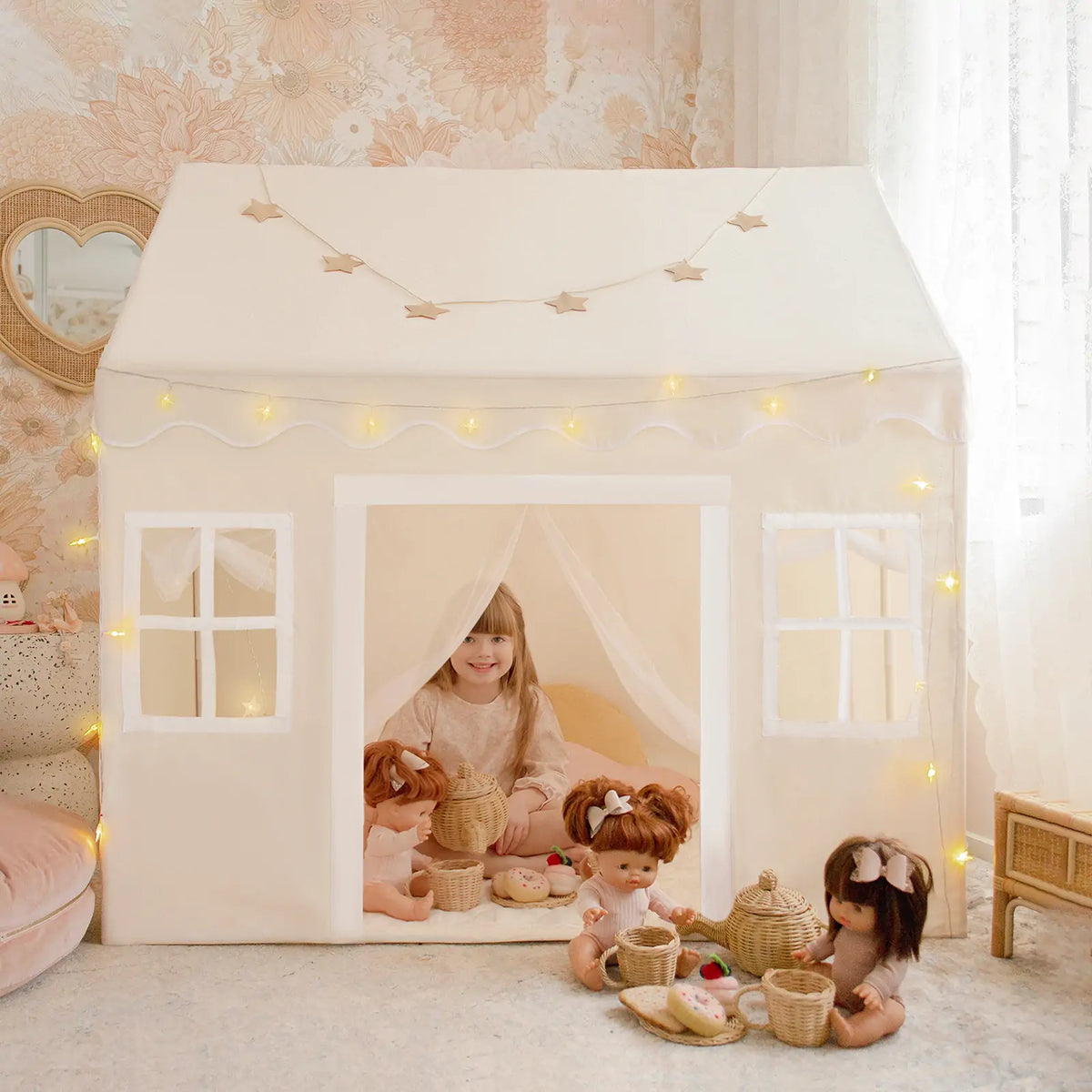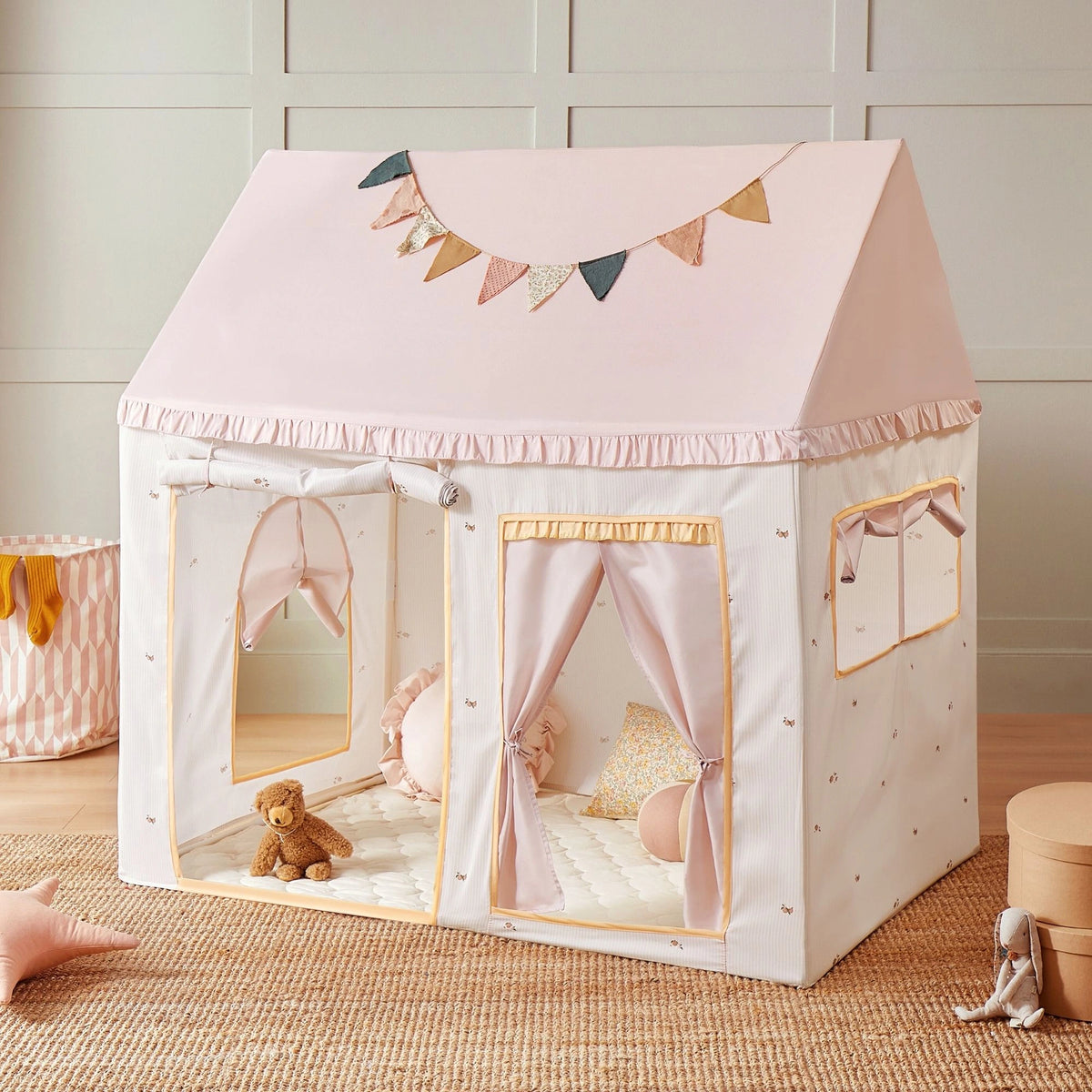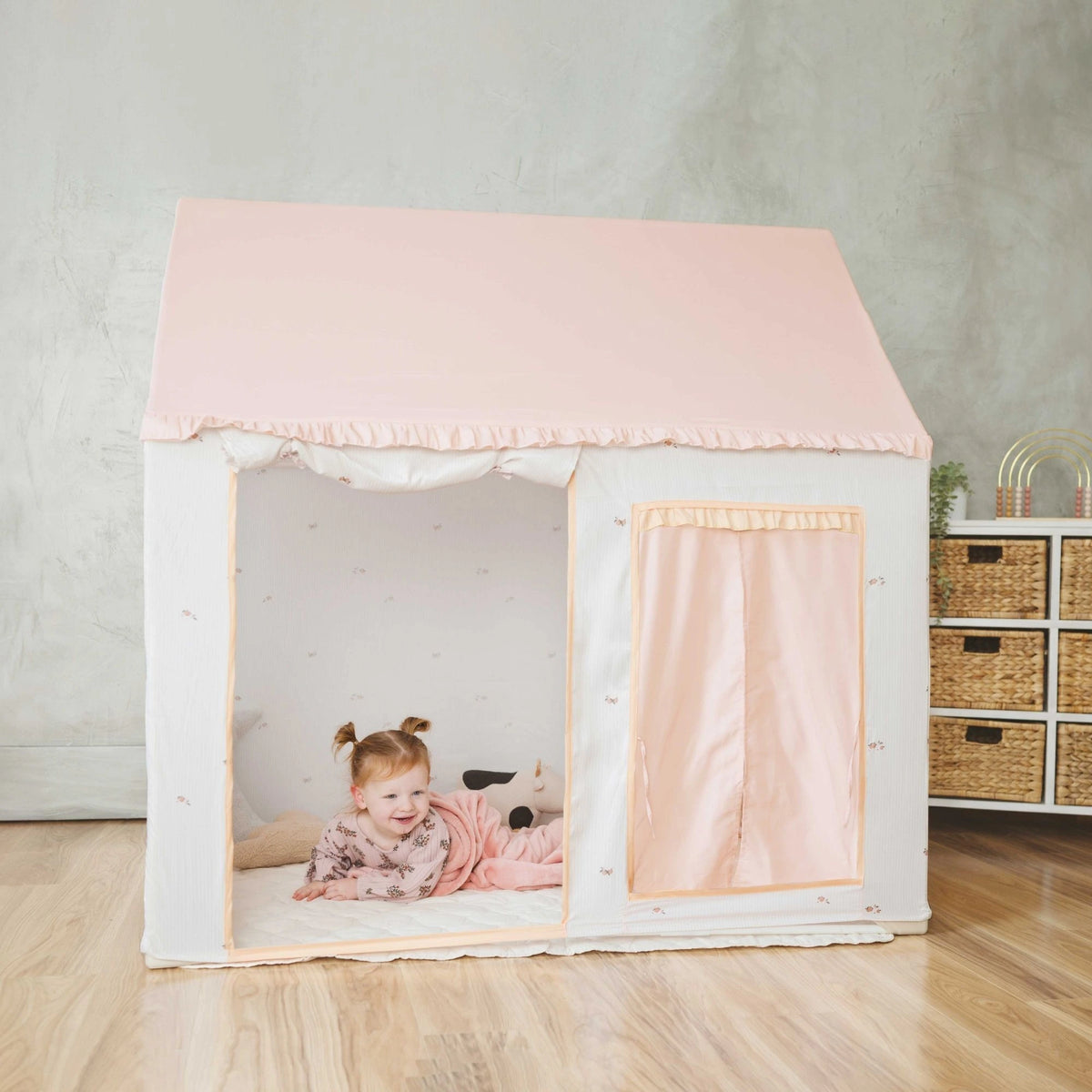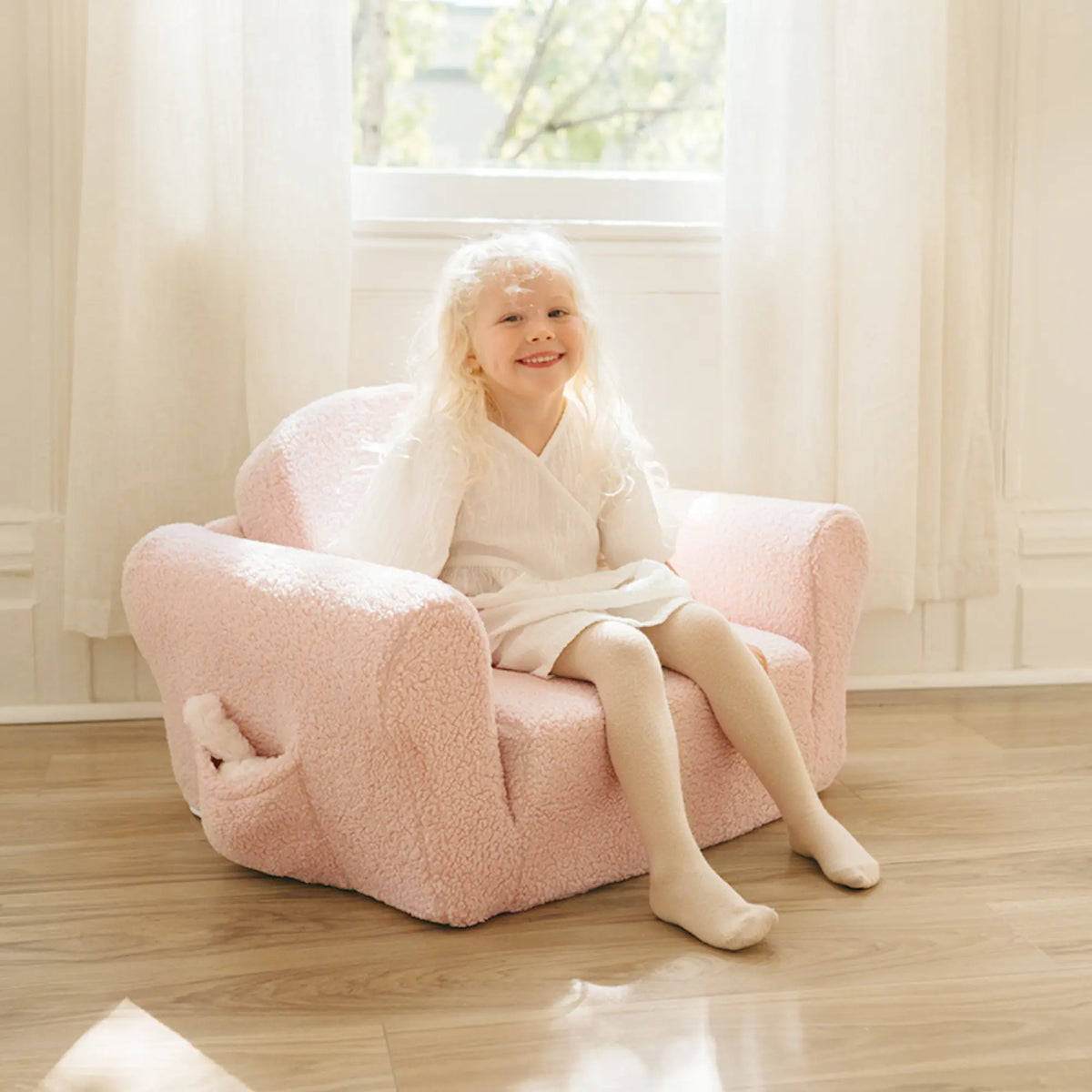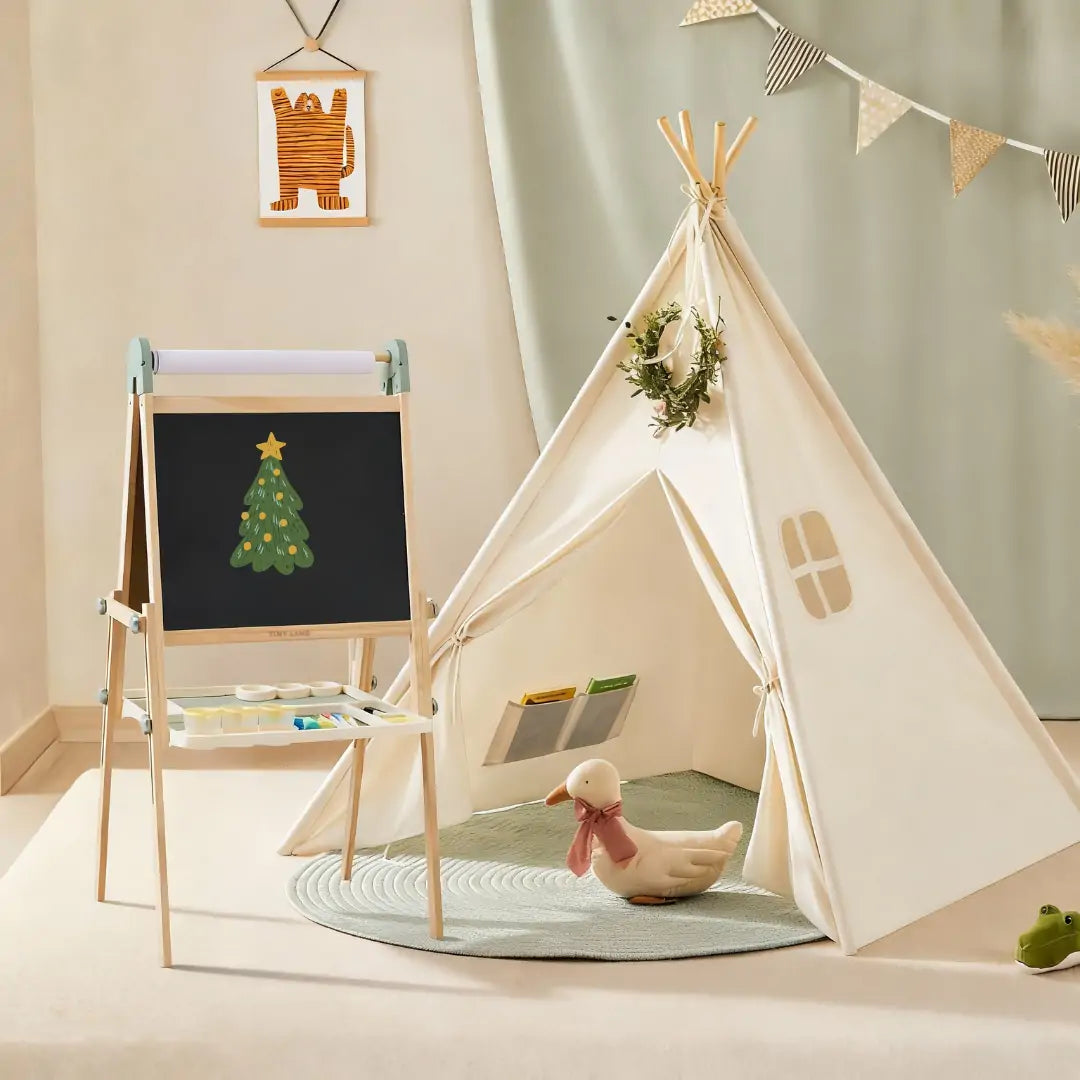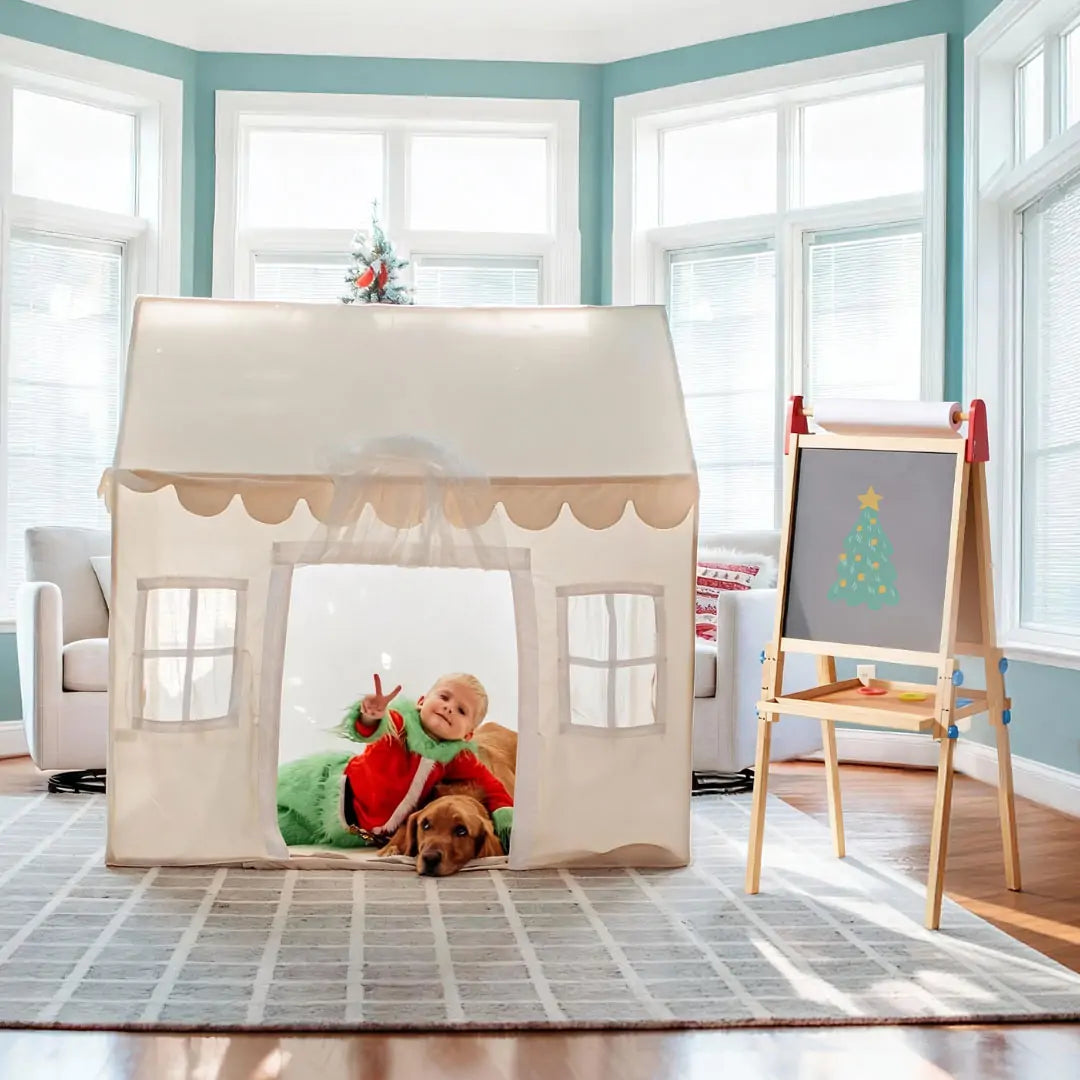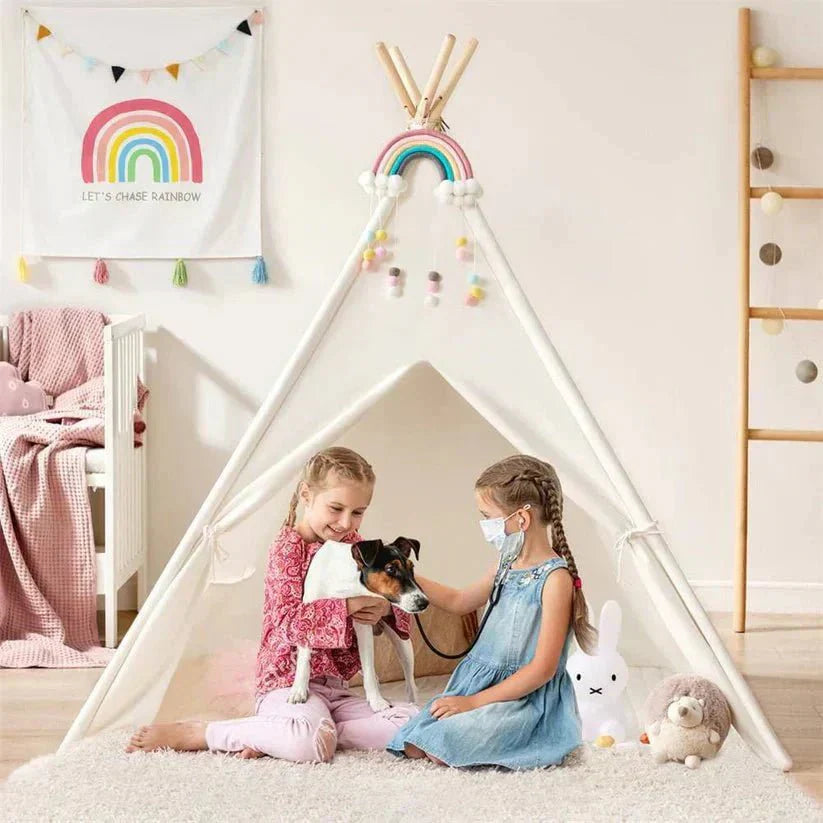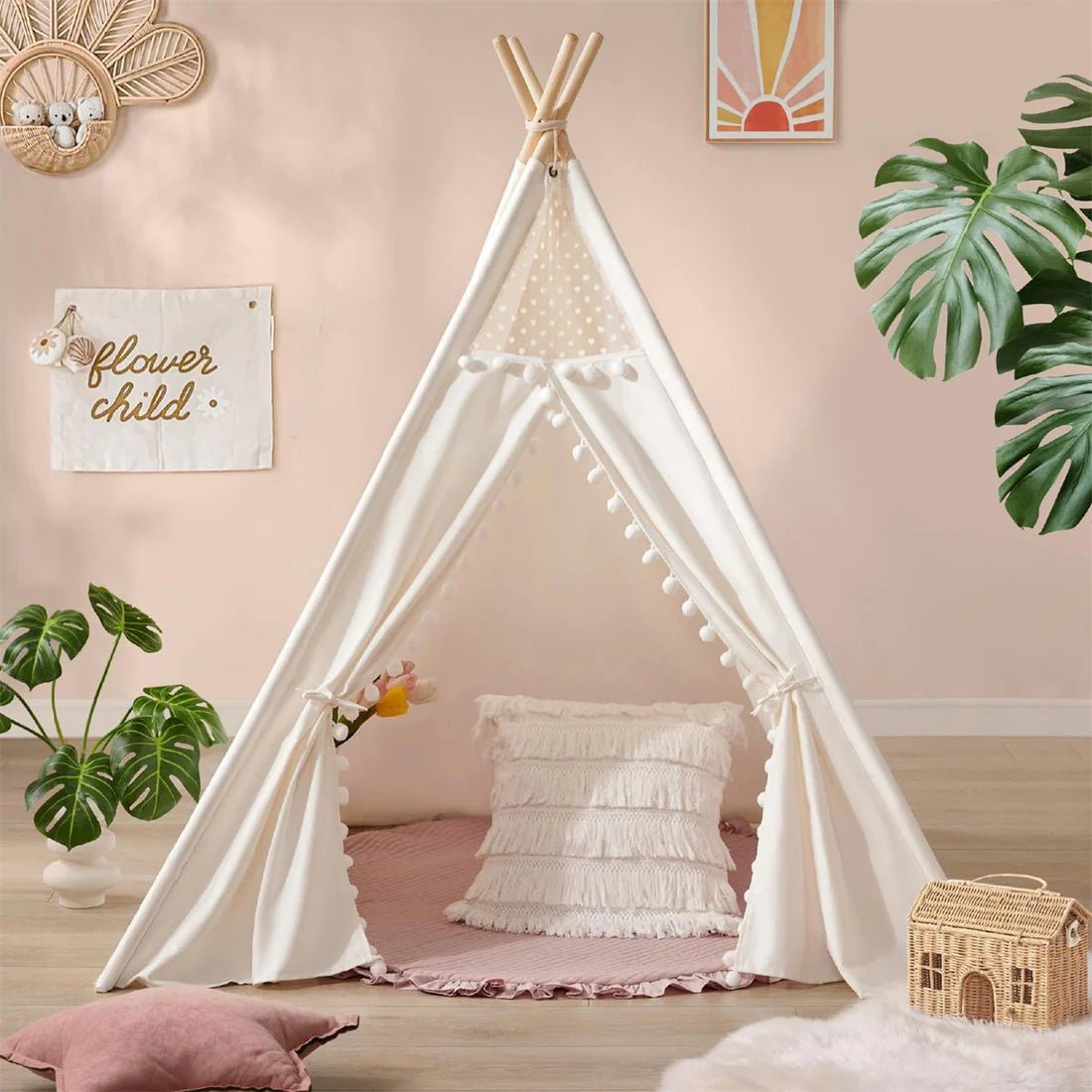Today, let's talk about the good and not-so-good parts of kids playing in tents! Tents are like magical worlds where kids can imagine anything and go on amazing adventures. But as grown-ups, it's our job to think about what's good and not about this fun activity. We'll look at the pros and cons of having children play tents and also think about some important things to remember when we play in them.
Pros of having children play tent
We should recognize the Pros of having children large play tent. Let’s start!
A. Creativity and Imagination
Pretending situations: Inside a kids teepee, the conceivable outcomes are inestimable. Youngsters change into knights shielding their palace, bold voyagers crossing the wild or trying space travelers investigating far-off planets. Each new situation inspires them to think bigger muscles and figure out how to break new ground.
Creating imaginary worlds: Inside the comfortable bounds of a tent, youngsters become modellers of their nonexistent domains. From developing fortifications out of covers to planning secret safe-houses, they practice their inventive ability, building universes restricted simply by the limits of their creative mind.
B. Physical Activity
Climbing, creeping, and development: Tents give the ideal setting for kids to participate in actual play. Whether they're slithering through shoddy passages or scaling the walls of their stopgap post, they're continually moving, sharpening their coordination.
Development of gross motor skills: As they explore the landscape of their rose area, kids foster fundamental gross coordinated movements. From adjusting unstably on shoddy extensions to exploring impediment courses, each play meeting fortifies their muscles and works on their coordination.
C. Cognitive Development
Critical thinking inside restricted spaces: Inside the comfortable limits of a tent, kids experience a bunch of difficulties to survive. From sorting out some way to fit all their toys inside to conceiving methodologies for building the ideal pad post, they utilize their critical thinking muscles and figure out how to fundamentally think.
Learning spatial mindfulness: Tents come in all shapes and sizes, expecting kids to explore and grasp spatial connections. As they move through the restricted living arrangements of their rose hideout, they foster a sharp feeling of spatial mindfulness, improving their skill to see and figure out their general surroundings.
D. Emotional Development
Safe space for self-expression: Tents furnish youngsters with a protected and confidential space to openly put themselves out there. Whether they're showcasing their #1 stories or partaking in some peaceful time alone, they're ready to investigate their feelings and foster a more profound comprehension of themselves.
Sense of ownership and responsibility: When kids play in tents, they assume the job of guardian for their little cut of the world. From camping out to keeping their space clean, they foster a feeling of pride and obligation, learning the significance of dealing with their effects and regarding their current circumstance.
Cons of Kids Playing in Tents
We should see the Cons of Kids Playing in Tents.
A. Security Concerns
Risk of collapse or entrapment: Tents, particularly those made from covers or family things, may not necessarily give a steady construction. There's a gamble of breakdown, which could prompt injury if youngsters are inside at that point. Moreover, there's the chance of ensnarement if tents are not as expected or on the other hand assuming kids become tangled in texture.
Potential for accidents or falls: Inside the bound space of a tent, there's restricted space for development, improving the probability of mishaps or falls. Kids might stumble over toys or lose their equilibrium while exploring the inside, prompting knocks, injuries, or more serious wounds.
B. Limited Supervision
Difficulty monitoring children inside tents: When youngsters play inside tents, it very well may be provoking for guardians to keep up with consistent oversight. The dark walls of the tent might block permeability, making it hard to watch out for what's going on inside. This absence of management could expand the gamble of mishaps or perilous ways of behaving slipping by everyone's notice.

Possibility of hidden dangers: Without direct oversight, there's a gamble that youngsters might experience stowed-away risks inside the tent, for example, little items that represent a stifling danger or sharp edges that could cause injury. Without appropriate oversight, these dangers might slip through the cracks until it's past the point of no return.
C. Social Isolation
Encouraging solitary play: While playing in tents can be alone and vivid experience, it might likewise add to social disconnection. Youngsters who burn through expanded periods playing alone in their tents might pass up open doors for social collaboration and the improvement of fundamental interactive abilities.
Missed opportunities for social interaction: Rather than drawing in with companions and kin in helpful play, kids playing in tents might withdraw into their reality, passing up the rich social associations that come from playing together. This separation could influence their capacity to convey, coordinate, and understand others.
D. Dependency on Technology
Preference for virtual experiences over physical play: In the present computerized age, kids are progressively attracted to screens and virtual encounters. Playing in tents, with its accentuation on creative and actual play, may battle to rival the appeal of computerized diversion. Therefore, youngsters might become subject to innovation for diversion, as opposed to participating in genuine exercises.
Reduced engagement with real-world activities: By going through hours submerged in virtual universes or gazing at screens, youngsters might pass up the advantages of true exercises, like open-air play, imaginative investigation, and actual activity. This reliance on innovation could have long-haul ramifications for their actual wellbeing, mental prosperity, and general improvement.
Last Words
Playing in tents is super fun because it lets kids be creative, move their bodies, and learn new things. But we also need to be careful because sometimes tents can be not very safe, hard to watch over, and might make kids spend too much time with screens. By thinking about both the good and not-so-good things, adults can make sure that playing in tents is always fun, exciting, and safe for everyone involved!


